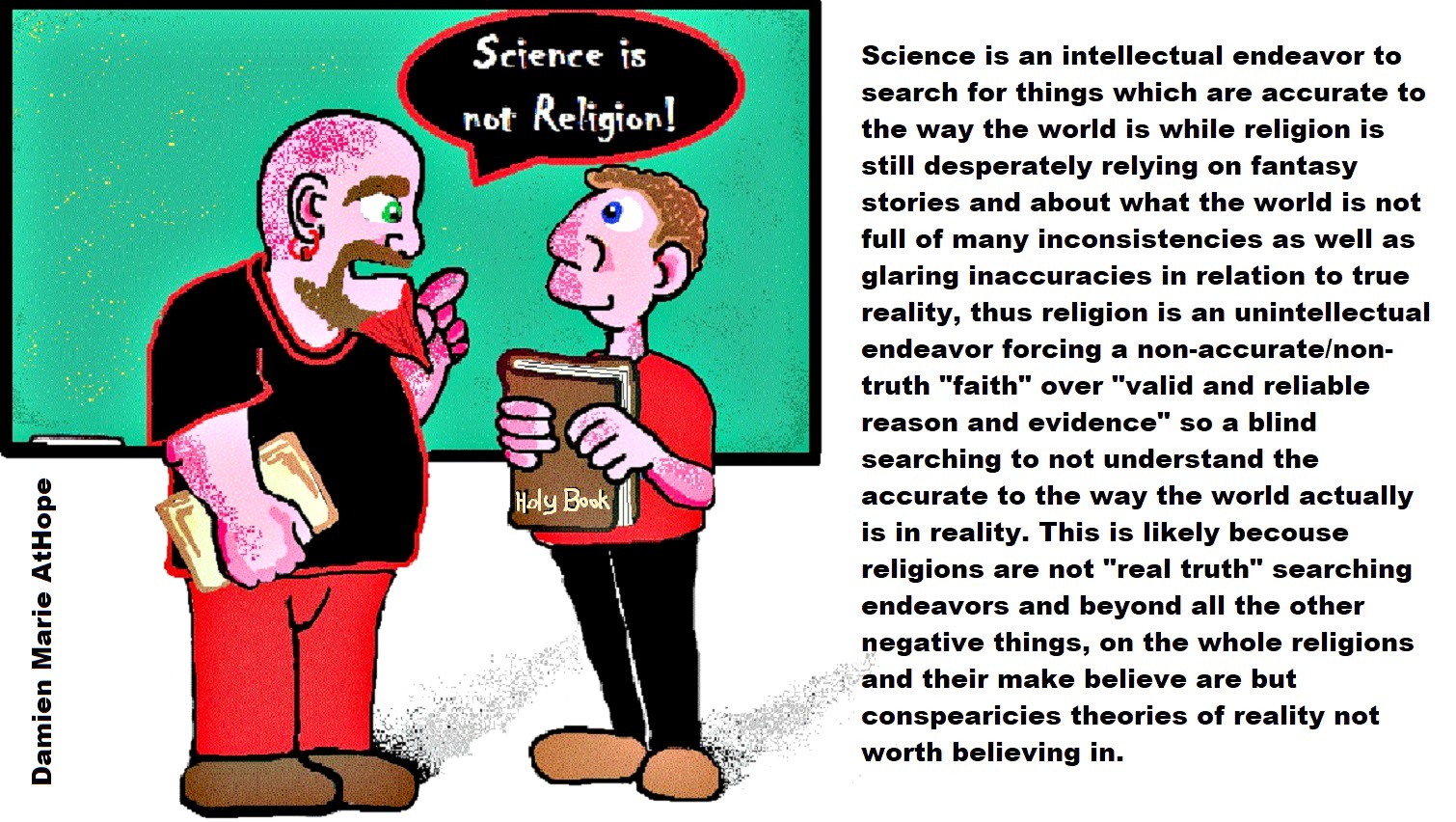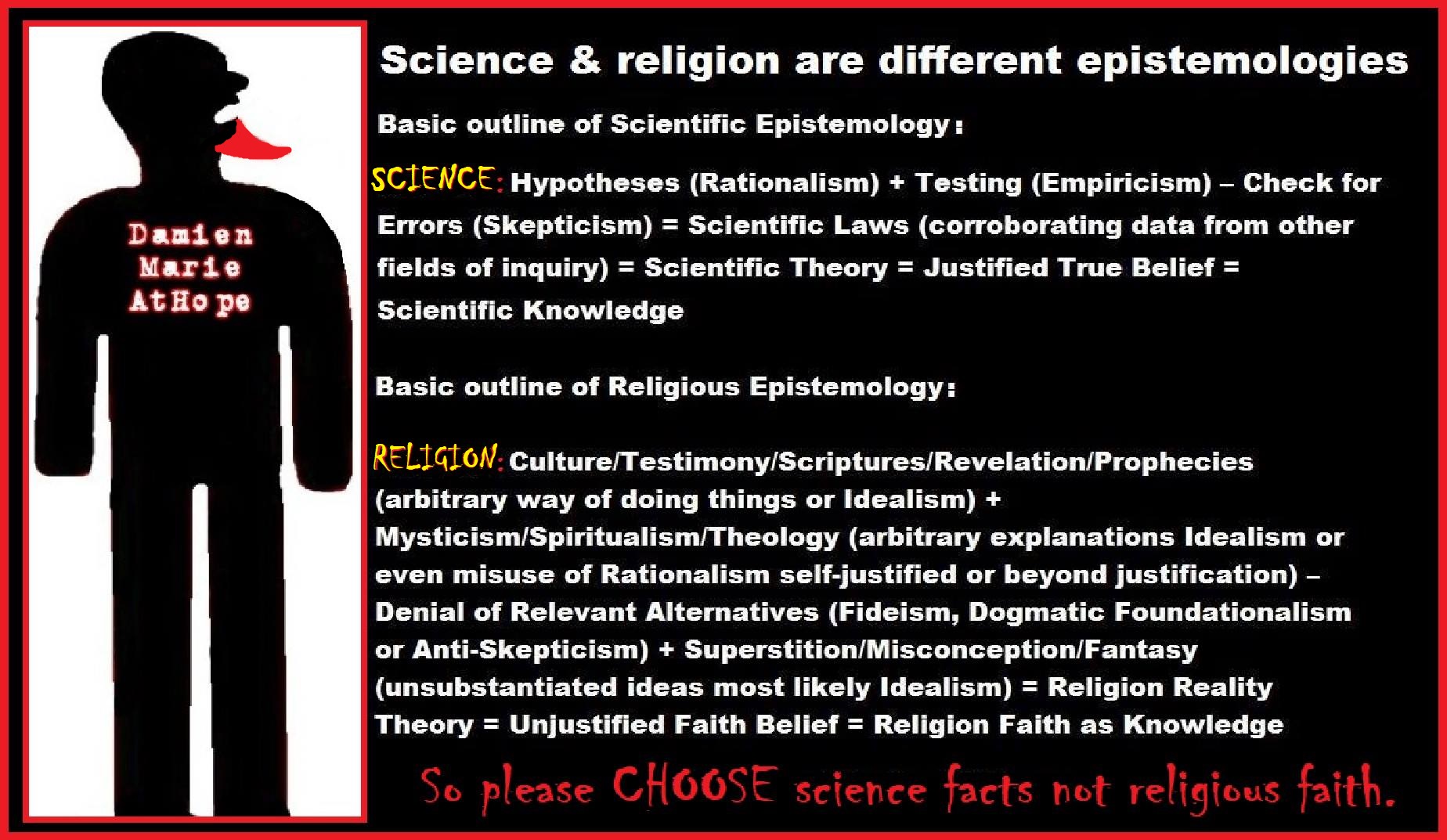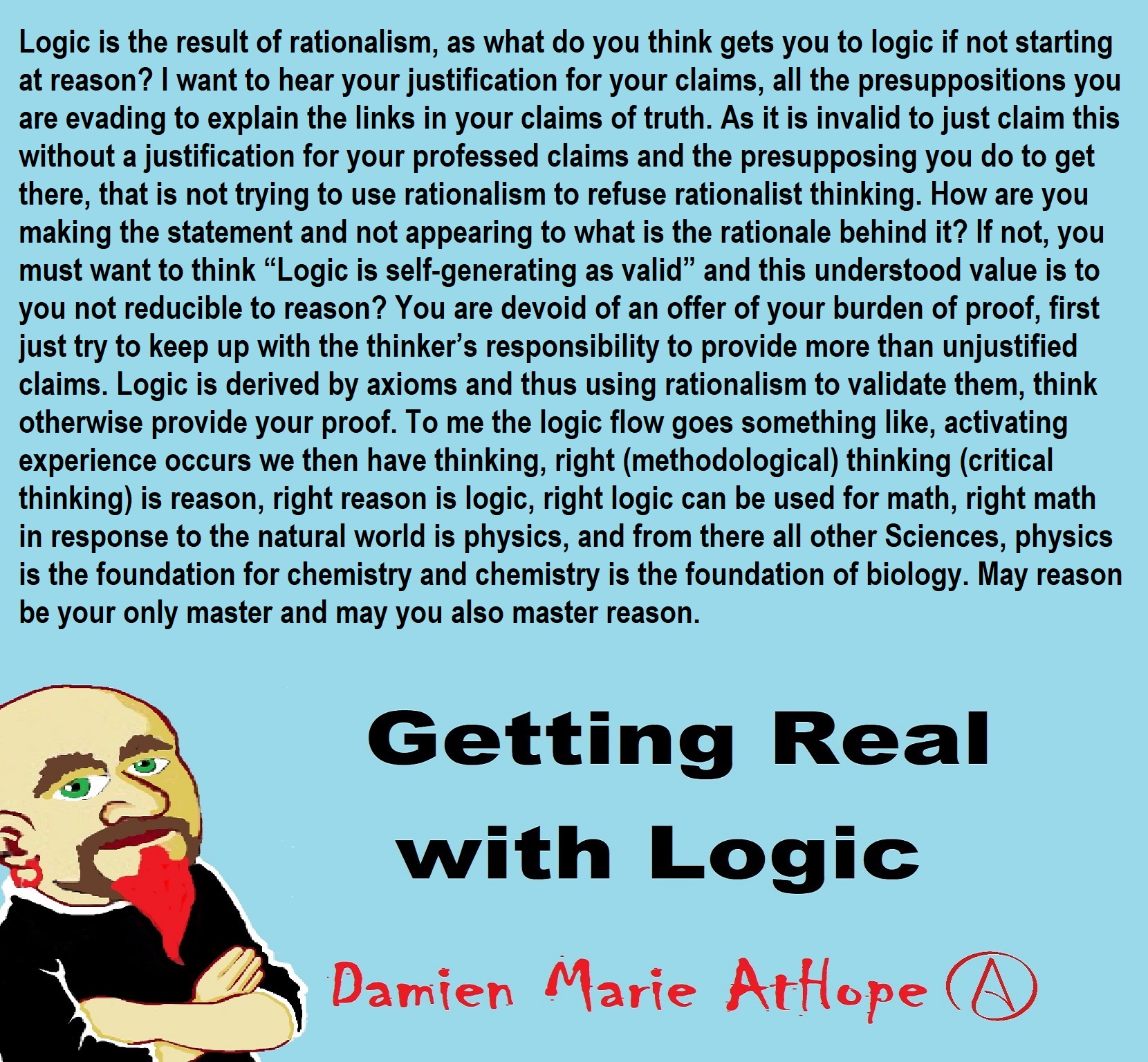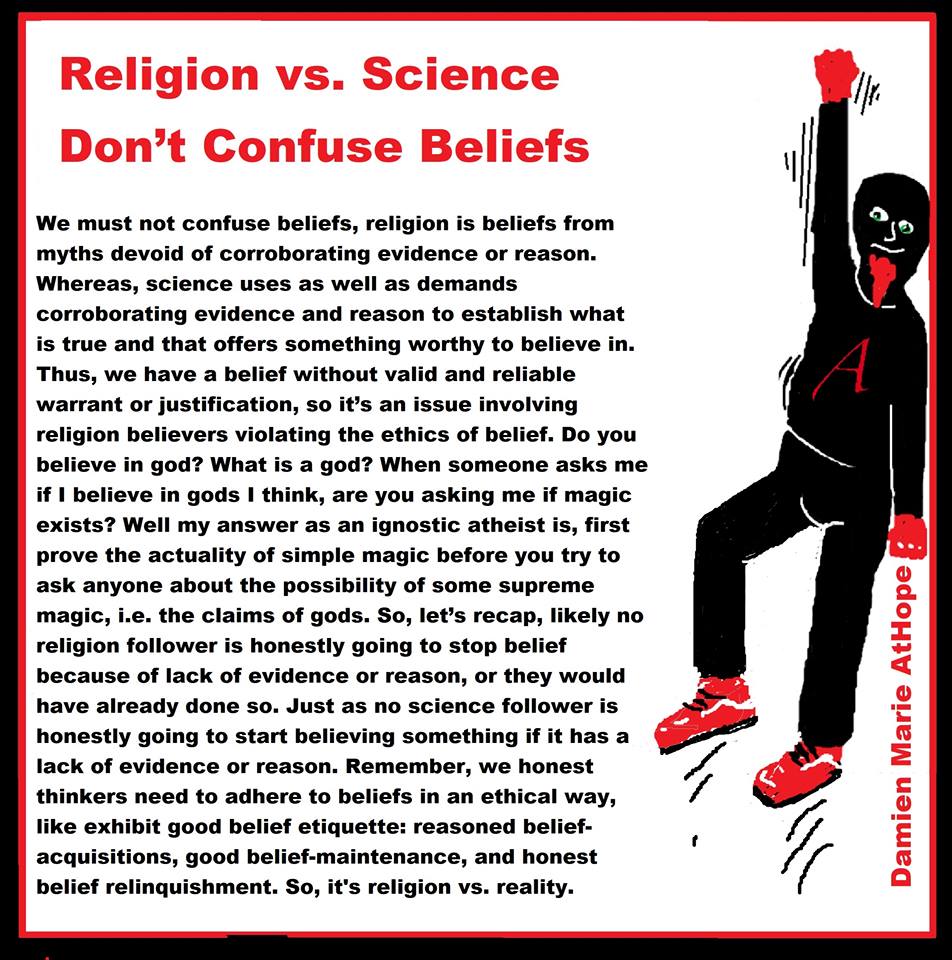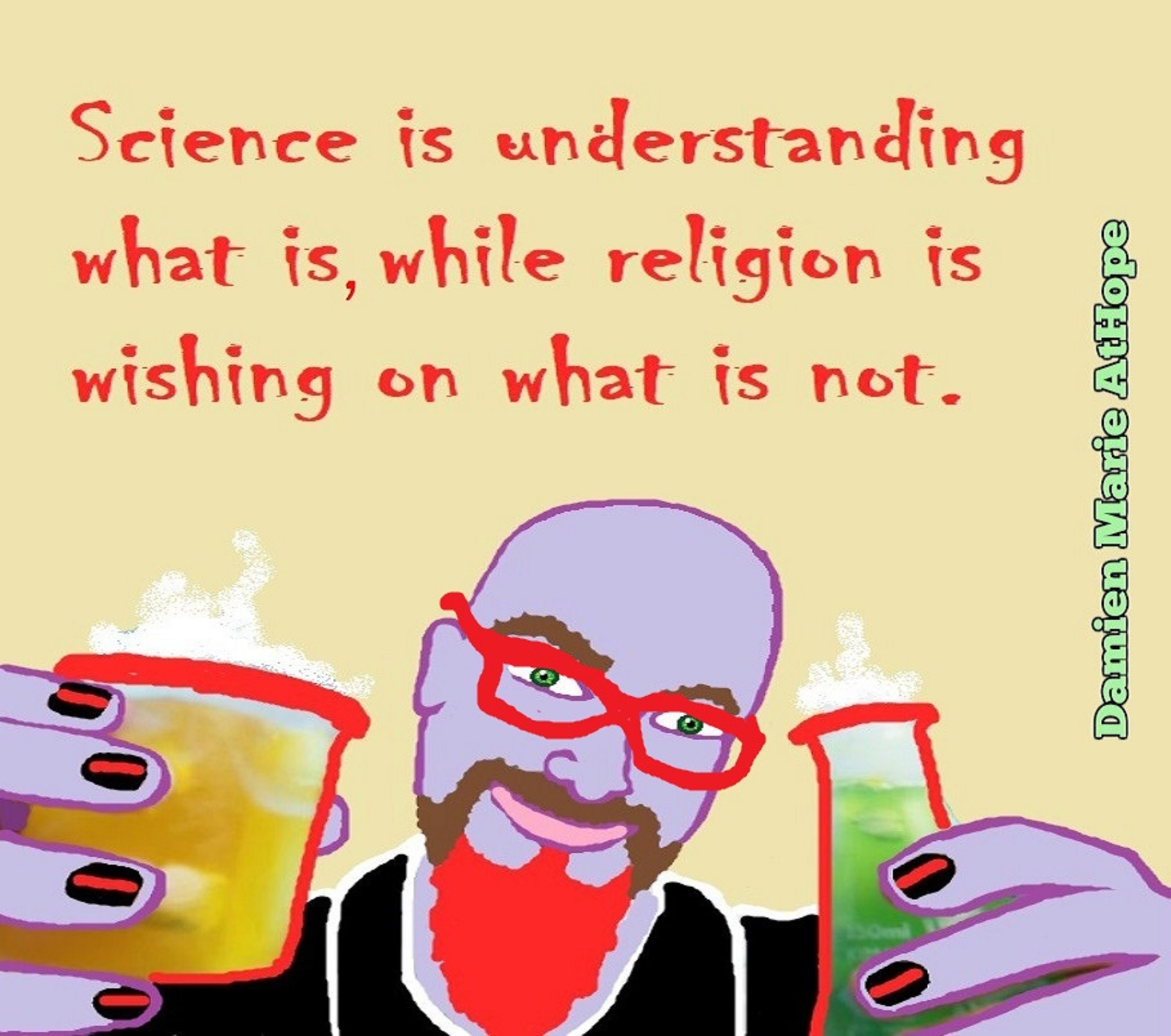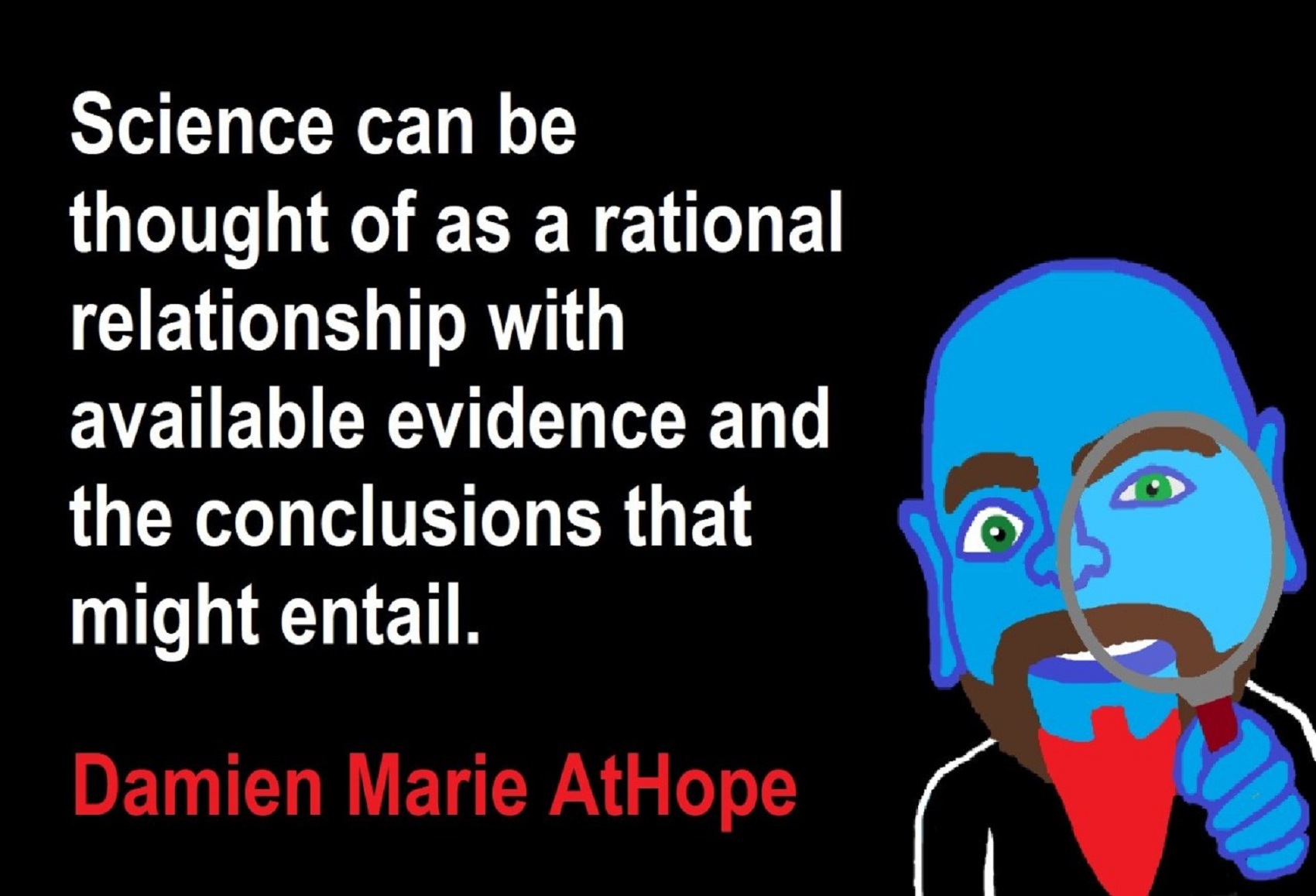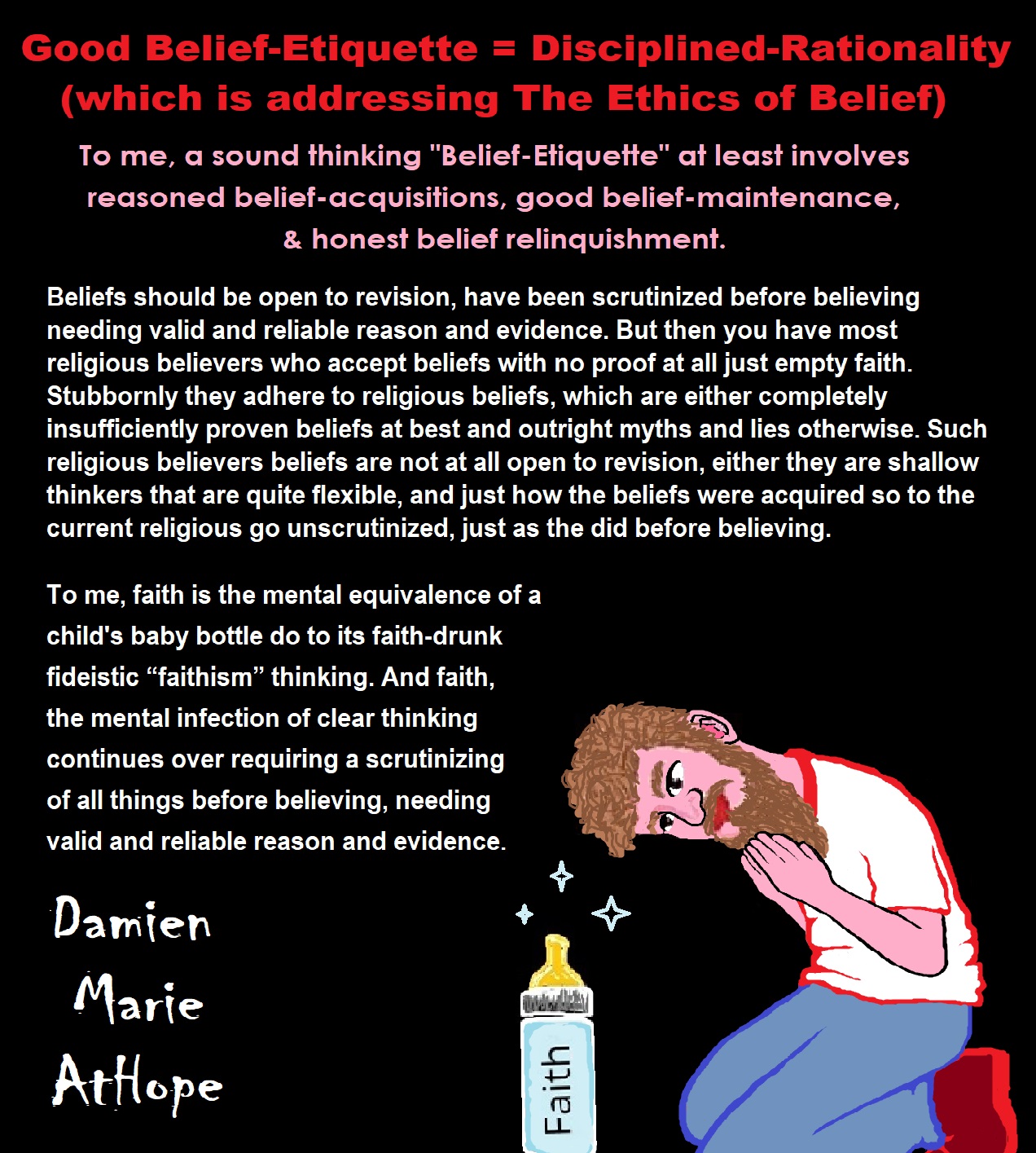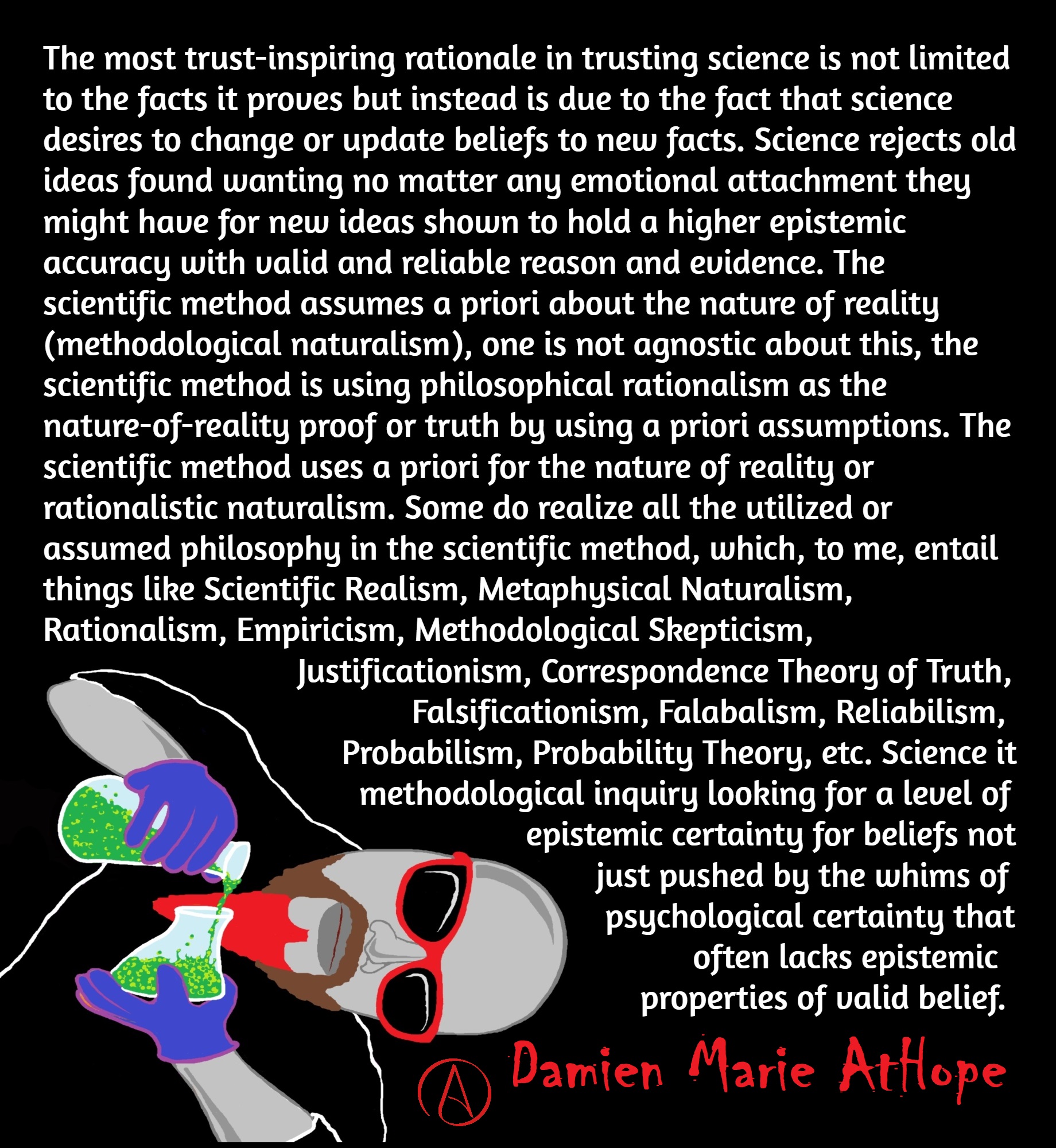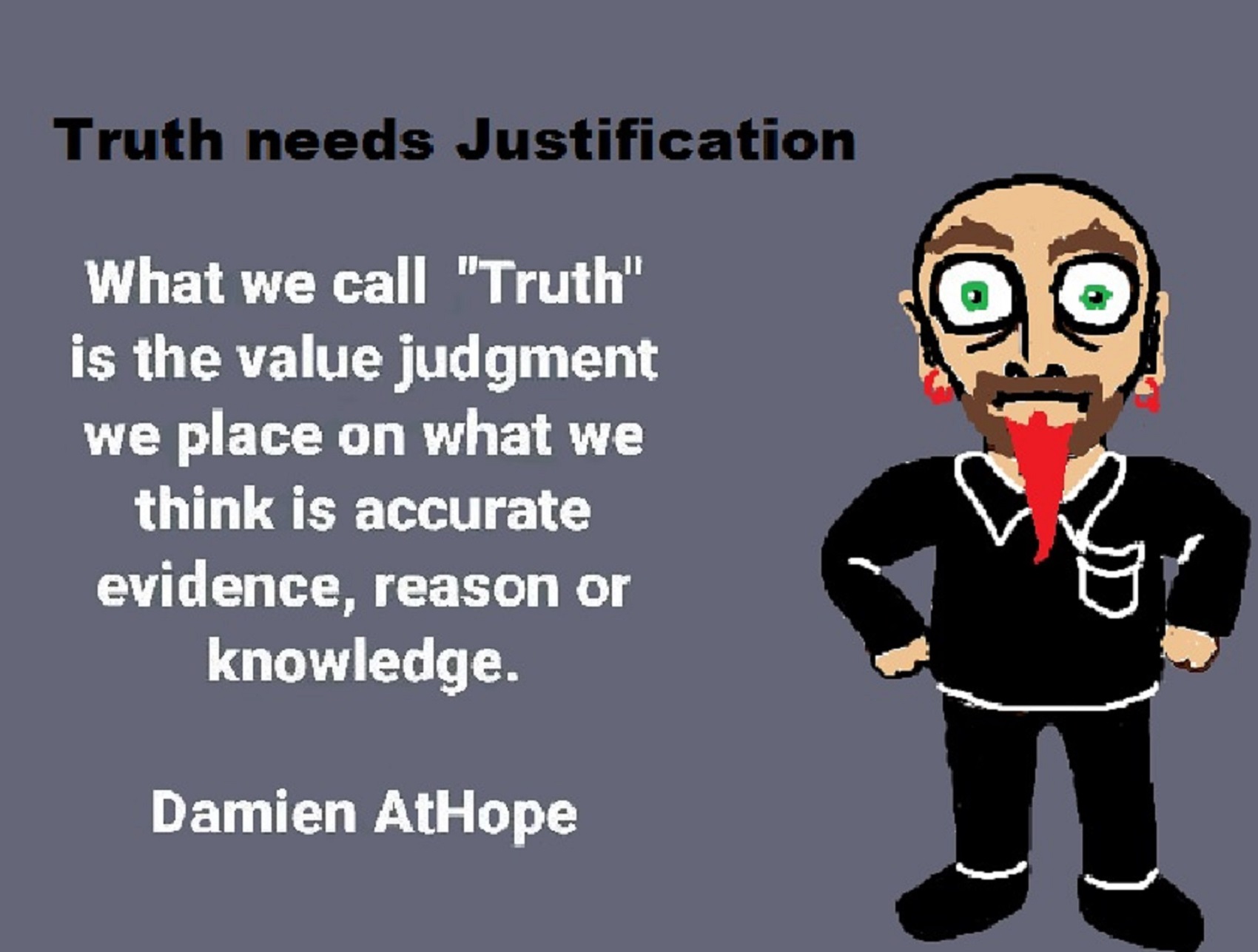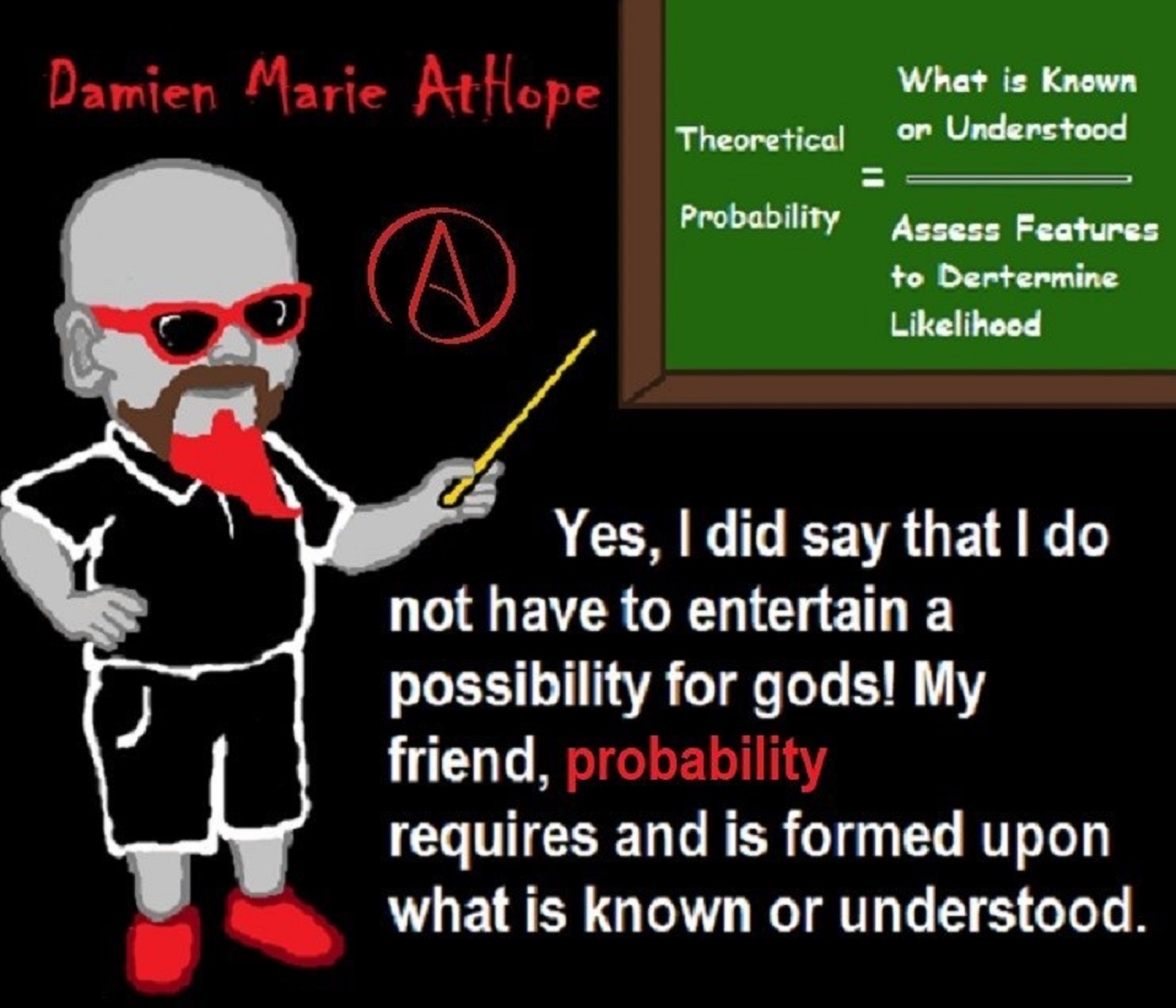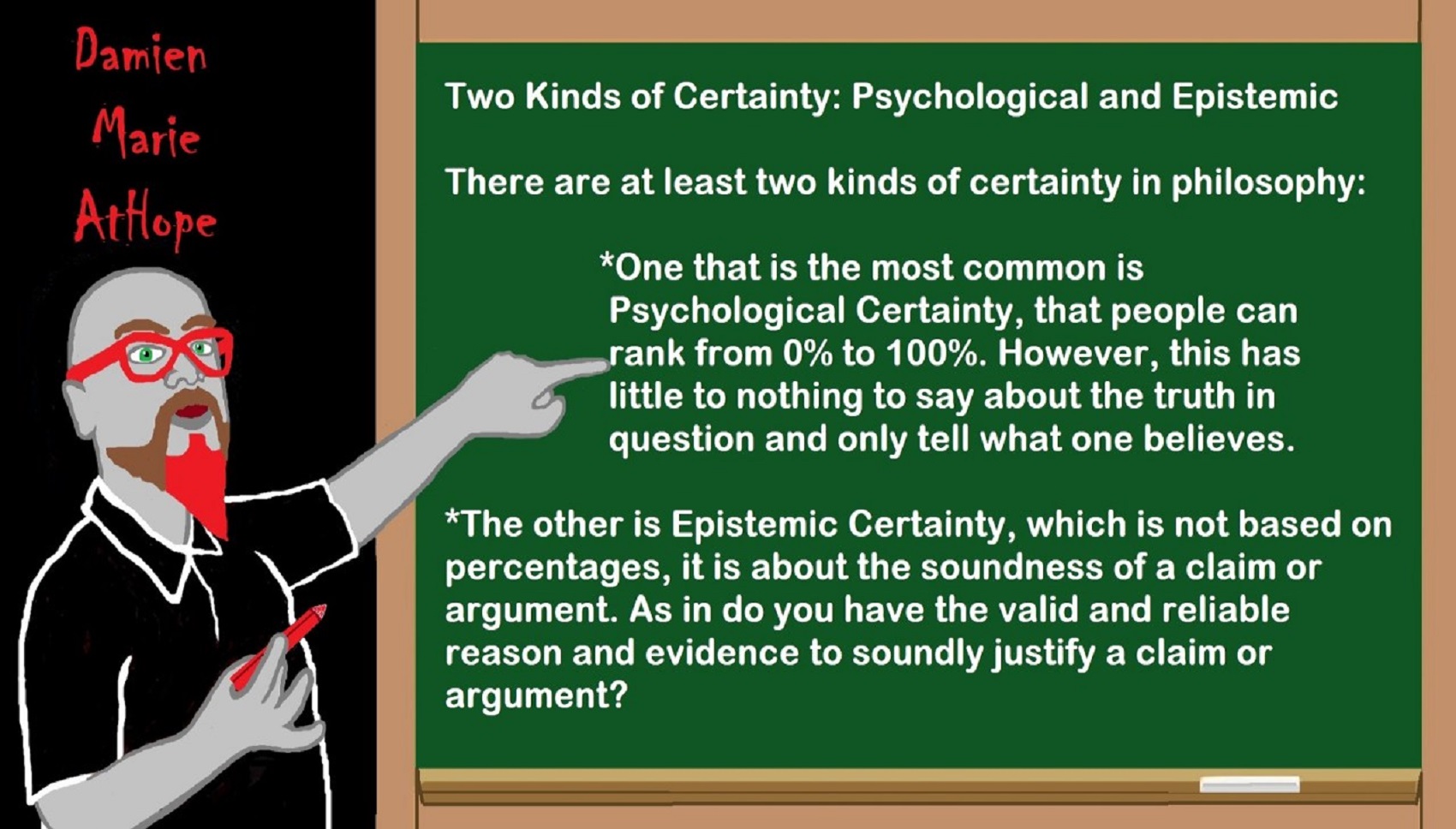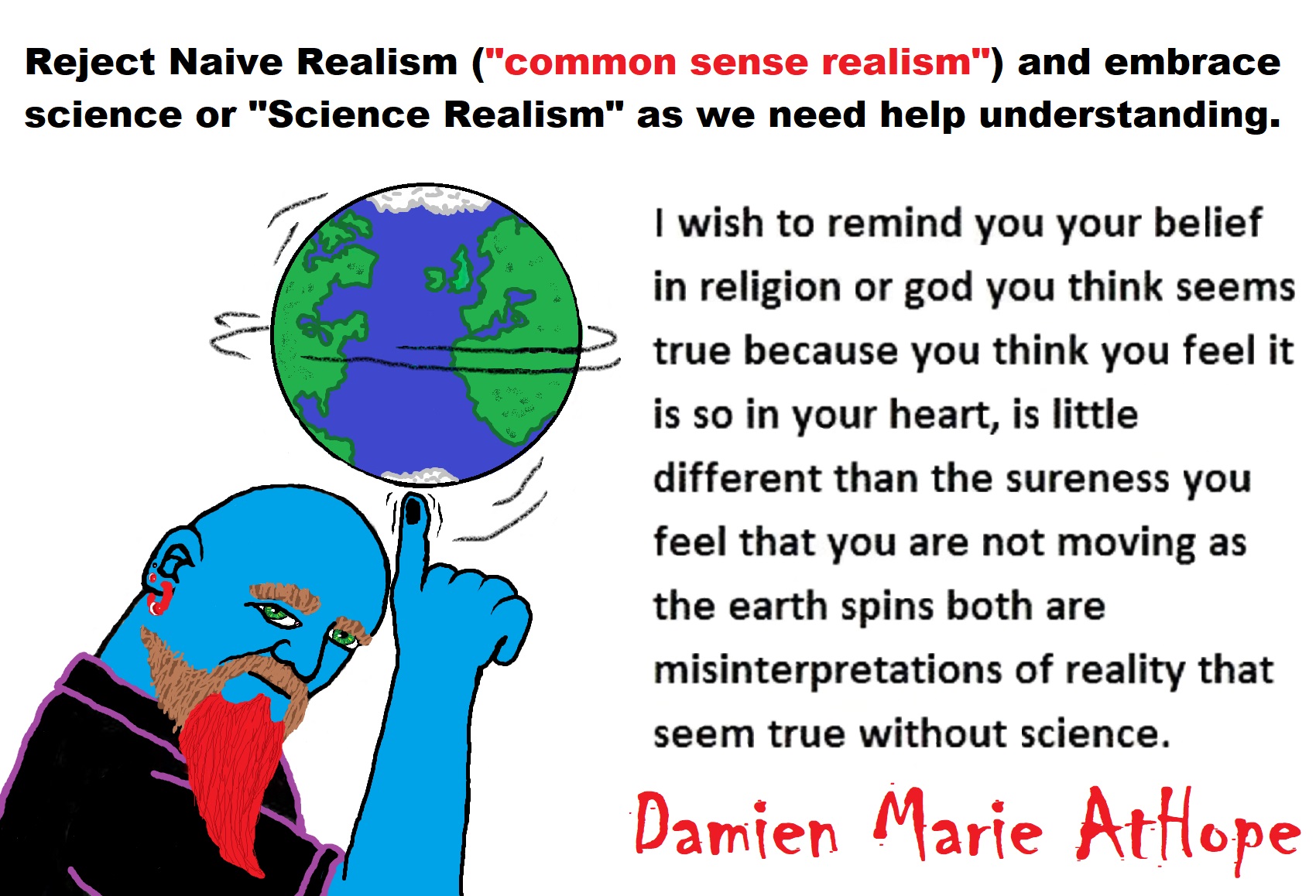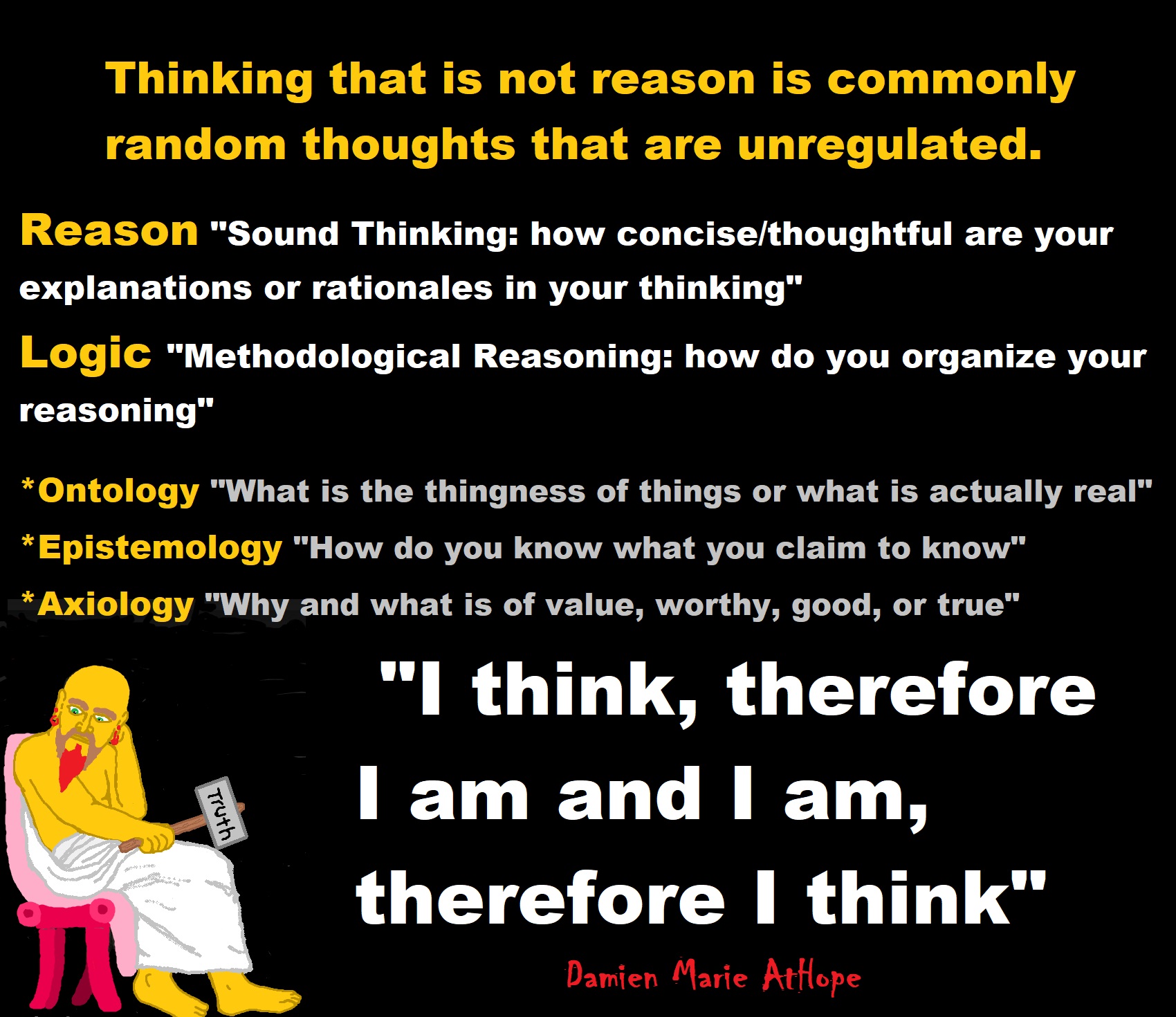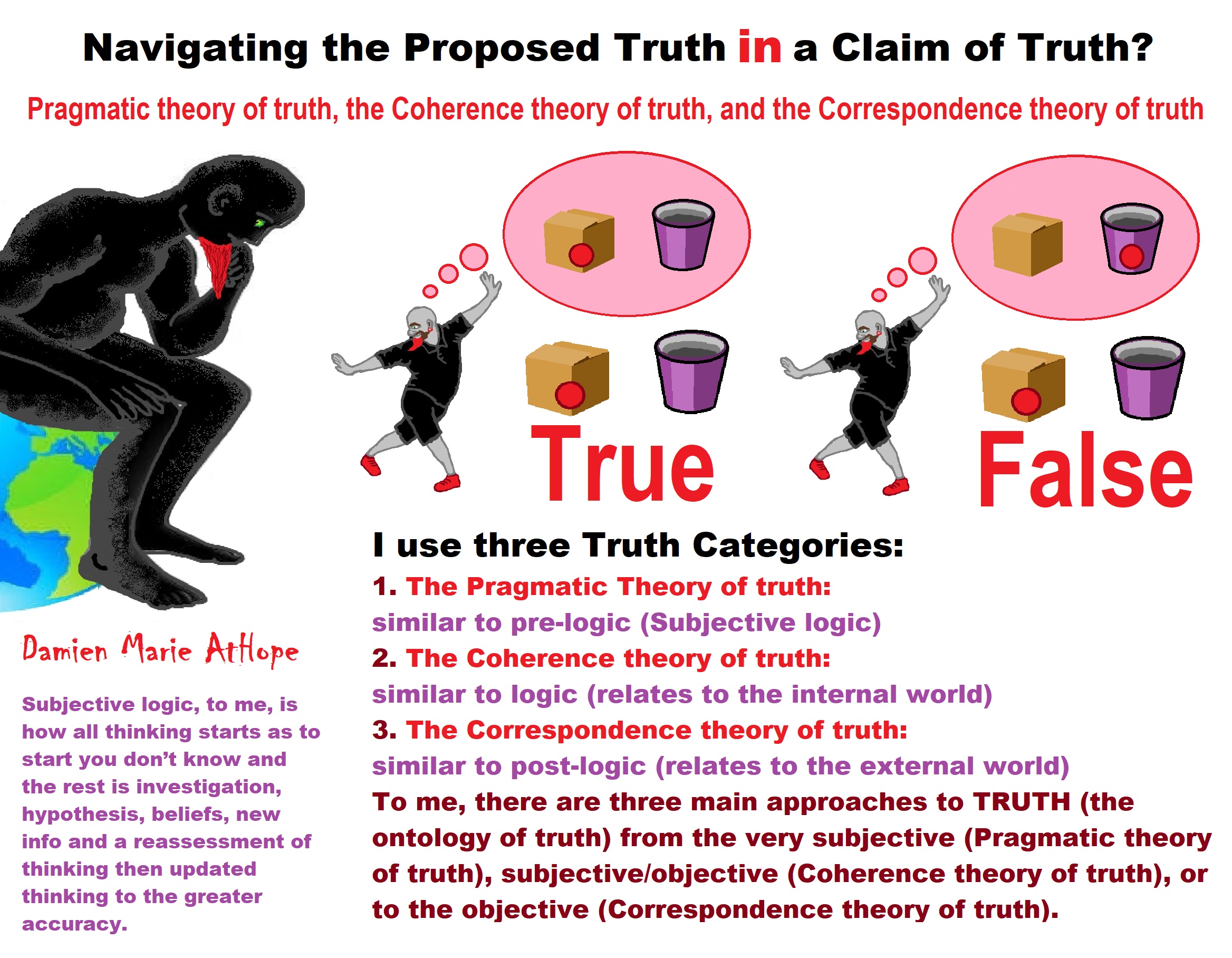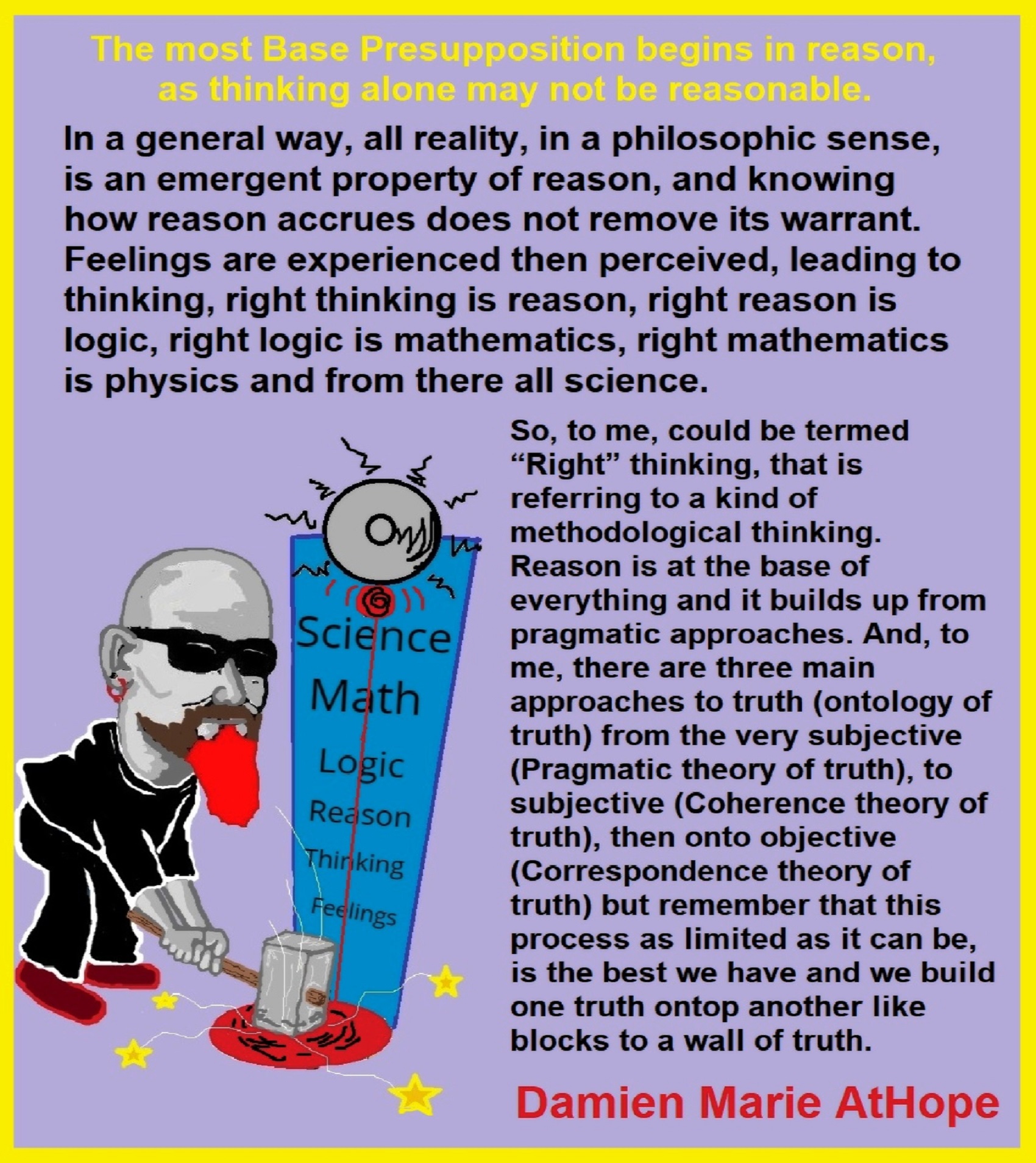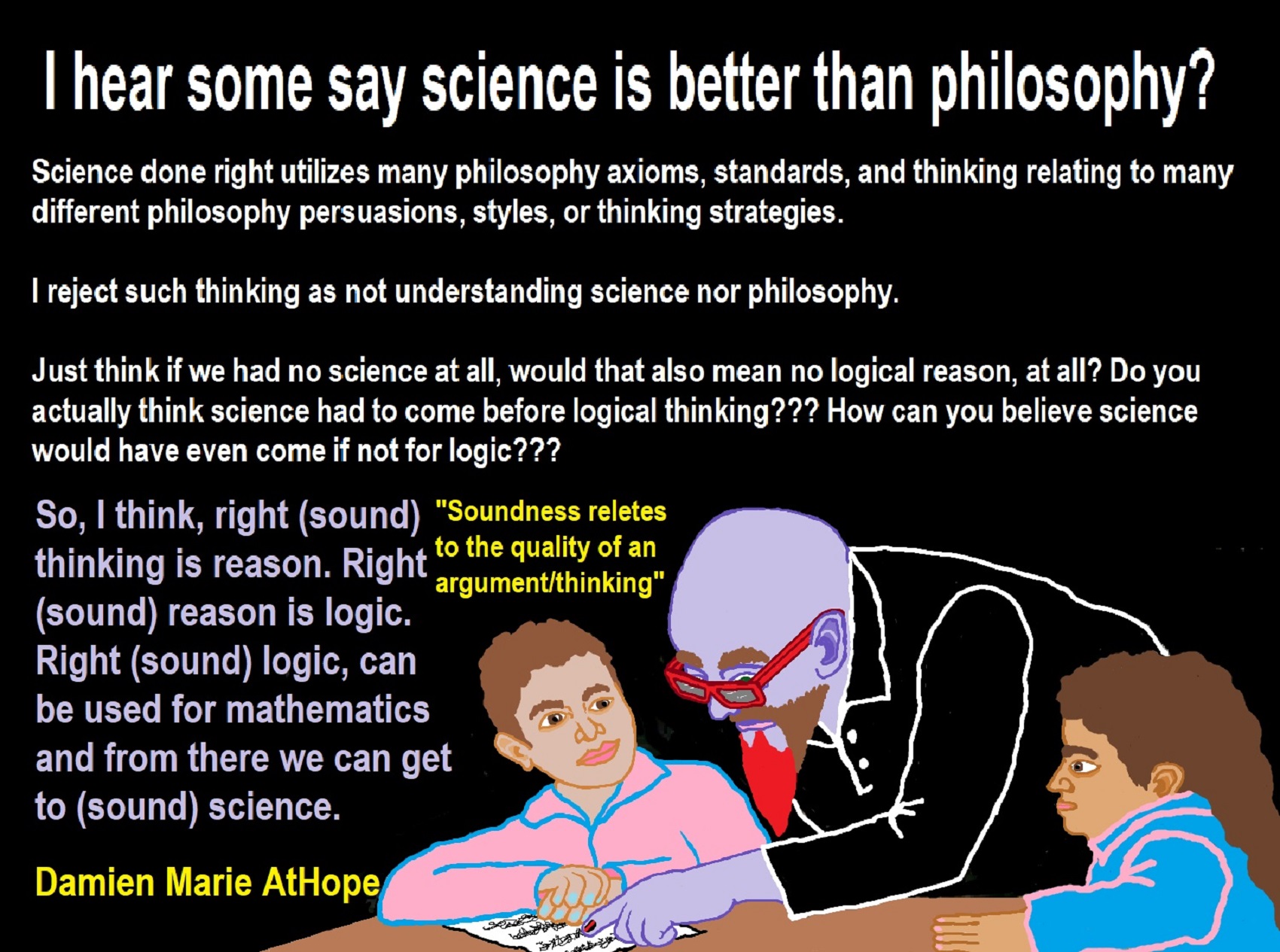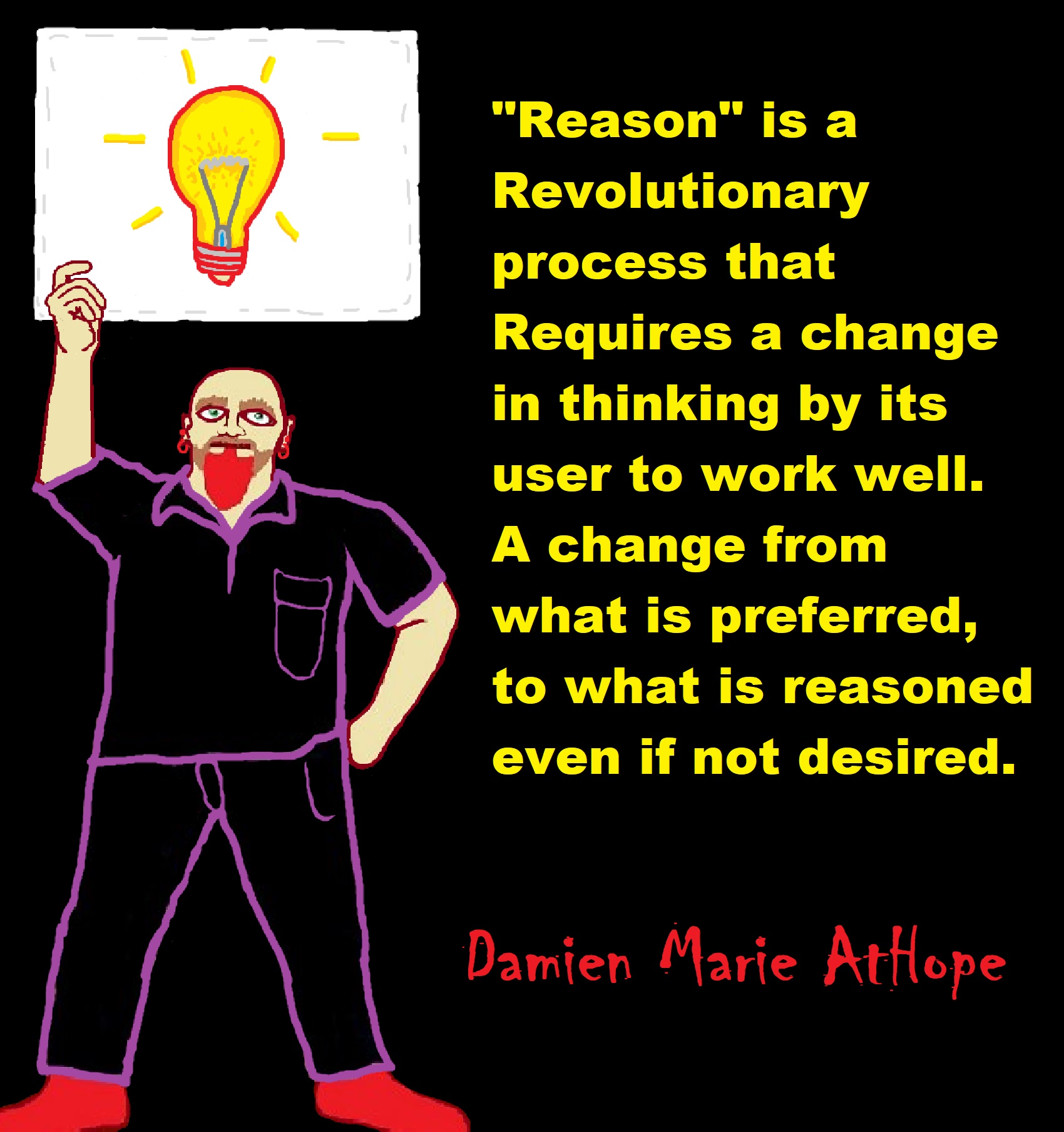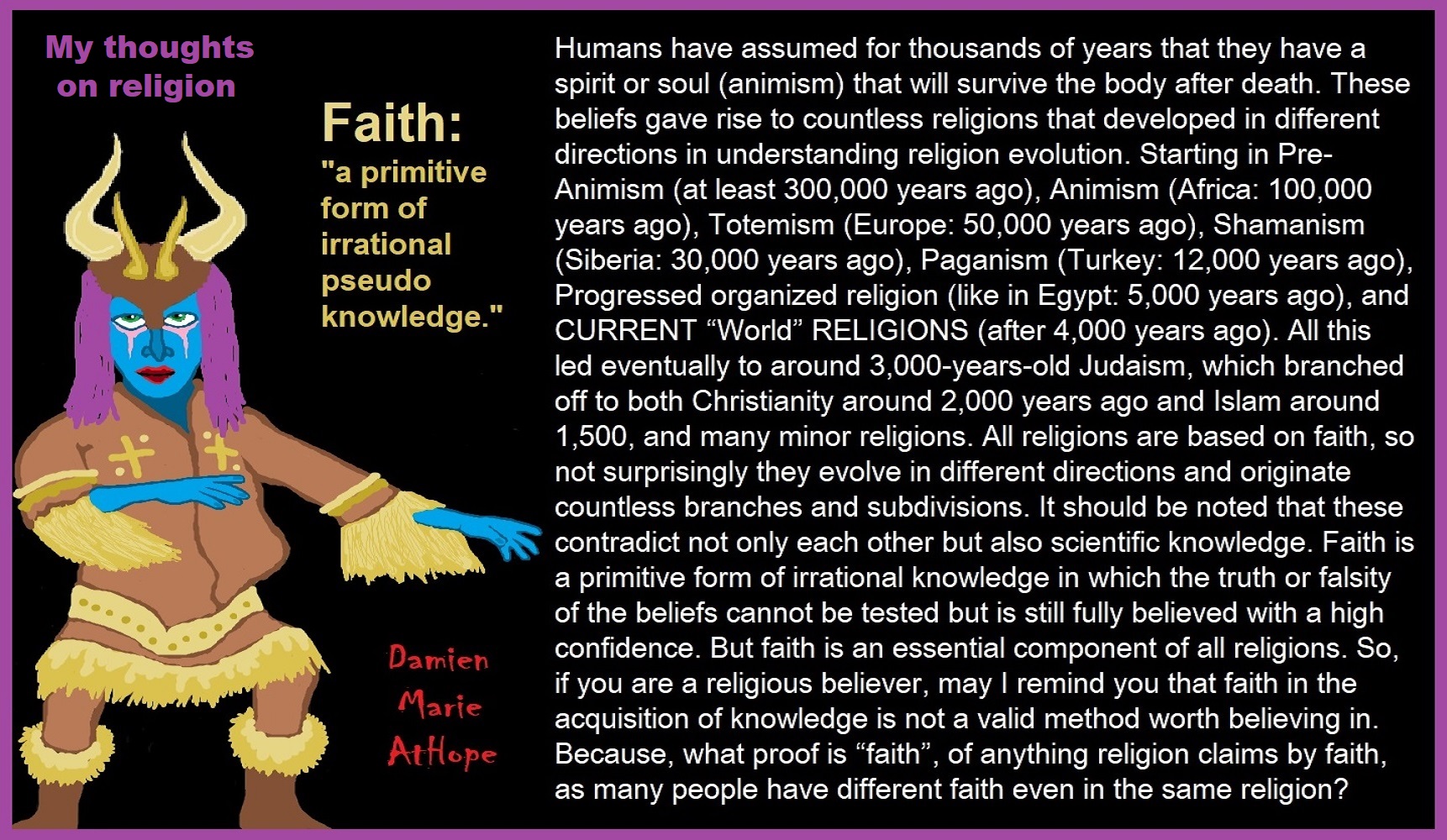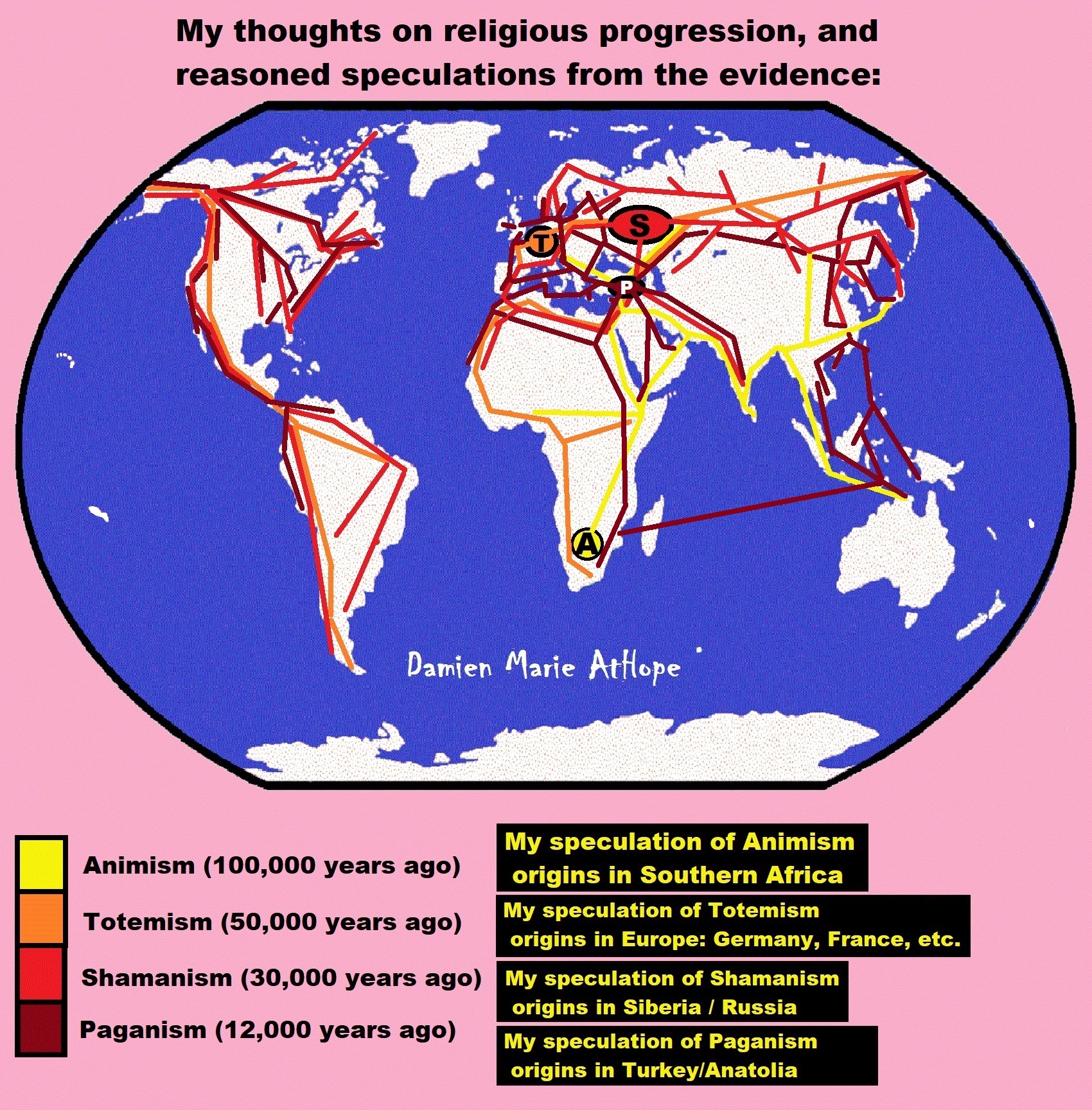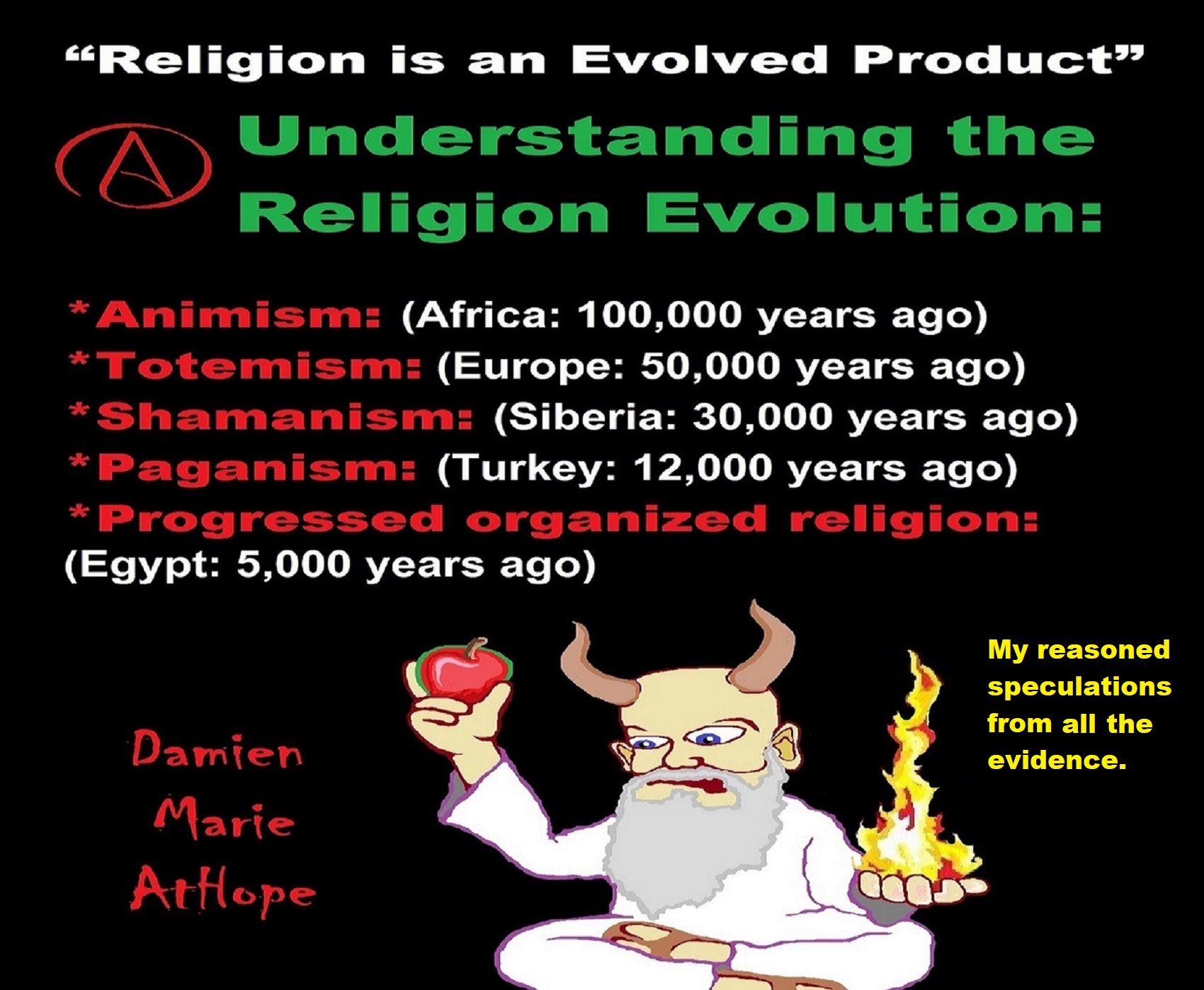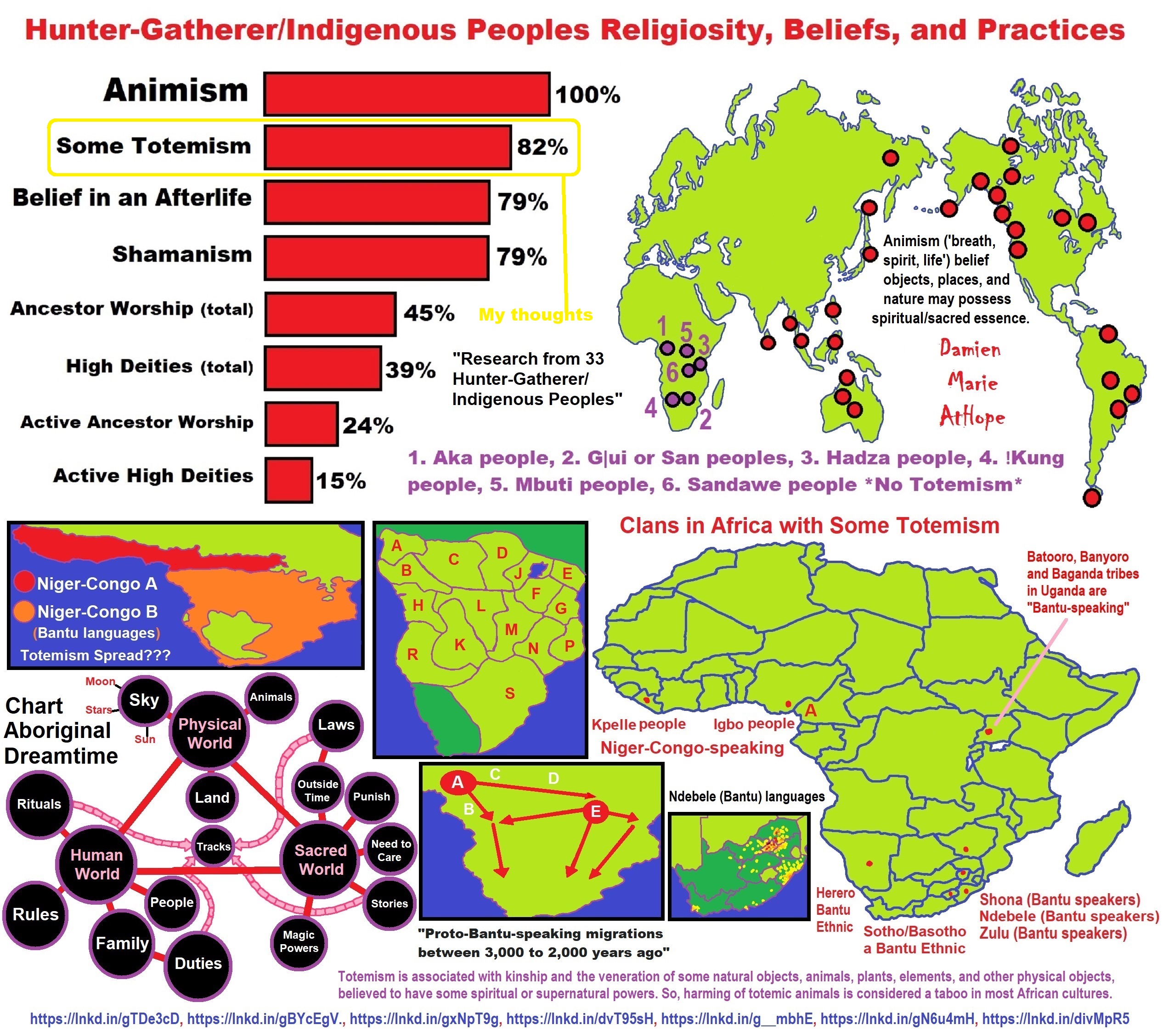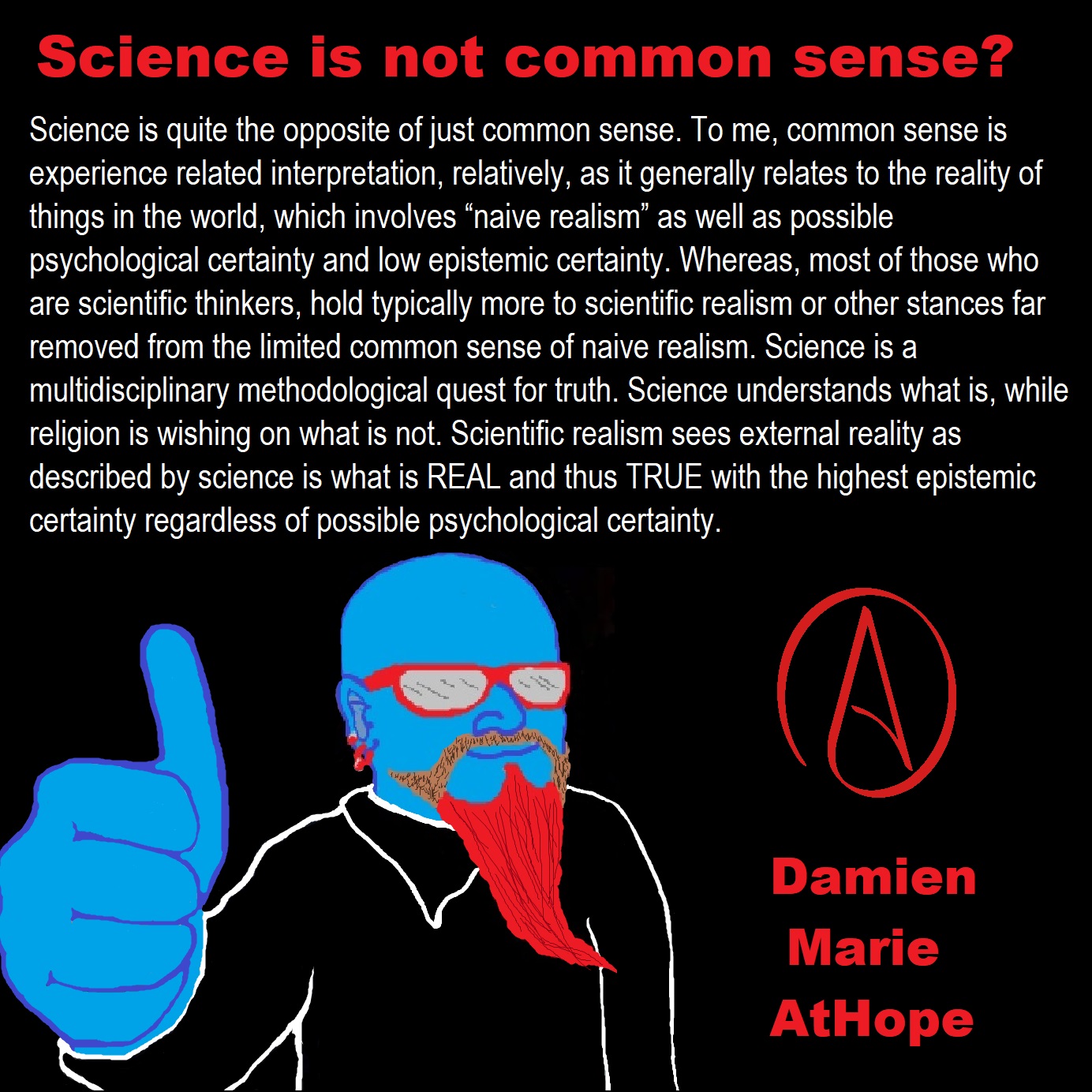
Scientific Values: fallibilism, realism, & rationalism
“Methodological naturalism (which involves natural elements, principles, and relations of the kind studied by the natural sciences) a belief or theory that opinions and actions should be based on reason and knowledge rather than on religious belief or emotional response. Methodological naturalism is the label for assumption of philosophical naturalism or metaphysical naturalism when working with the scientific method. Methodological naturalists limit their scientific research to the study of natural causes, because any attempts to define causal relationships with the supernatural are never fruitful, and result scientists assume that all causes are empirical and naturalistic, which means they can be measured, quantified and studied methodically. However, this assumption of naturalism only need not extend beyond an assumption of methodology. This is what separates scientific methodological naturalism from metaphysical naturalism — is scientific methodological naturalism is merely a tool and makes no truth claim, while metaphysical naturalism makes the philosophic — essentially atheistic — claim that only natural causes exist.” ref, ref, ref
“Logic (which involves a philosophy use and study of valid reasoning “rationalism”) Still not convinced that Science uses philosophy or what is unjustified claims that require doubt because of the philosophy of skepticism, if not tells us how without any branch of philosophy you know this, otherwise, I say it’s some philosophy. So, wait which is it then, does philosophy skepticism trump science observation proof of reality, if so I thought you did not think philosophy was better than science?
Pragmatic theory of truth, Coherence theory of truth, and Correspondence theory of truth
Here is more on fallibilism:
Fallibilism applies that assessment even to science’s best-entrenched claims and to people’s best-loved commonsense views. Some epistemologists have taken fallibilism to imply skepticism, though, it is fallibilist epistemologists (which is to say, the majority of epistemologists) who tend not to be skeptics about the existence of knowledge or justified belief. Generally, those fallibilist epistemologists see themselves as thinking about knowledge and justification in a comparatively realistic way — by recognizing the fallibilist realities of human cognitive capacities, even while accommodating those fallibilities within a theory that allows perpetually fallible people to have knowledge and justified beliefs. Epistemologists generally seek to understand knowledge and justification in a way that permits fallibilism to describe a benign truth about how we can gain knowledge and justified beliefs. The difference between fallibilism and skepticism lies in their beliefs about what constitutes knowledge. Fallibilists and skeptics both believe that we can never establish the truth of a proposition with 100% certainty. However, skeptics believe that we don’t know what we cannot confirm with 100% certainty, while fallibilists have a more moderate view where 100% certainty is not required for knowledge. When I state “fallibilists and skeptics both believe that we can never establish the truth of a proposition with 100% certainty.””, what I as a thinker using Fallibilism, believe that we can never establish the truth of a proposition with 100% certainty is referring to how it could be later found to be in error and may need adapting to the increase in epistemic accuracy tempered with Epistemic Humility. We are 100% certain all the time (certainty is a belief state), what most who doubt 100% certainty, likely are referring to is our ability to validate a kind of certainty or level of certainty as there is not one universal thinking on certainty with the two main types being psychological certainty or Epistemic Certainty. Certainty is connected to a belief state or level of sureness, so we can be 100% psychologically certain of things we state normatively. As in If I or you take a piece of text and know things about it as in is it written in a language legible to the general group of english only speakers to know it is written in english, as well as many other things with 100% logically certain belief. But I am open to new information to prove some thinking could be found in error in some way need updating to a more accurate view as a general epistemic persuasion. Ref Ref
Rationalism and the Enlightenment
Rationalist thinkers vs Skeptic thinkers
If I made the statement that the following proposition was 100% true and certain today and for all time that,
“There is a chance that Damien AtHope will either reply or not reply to his posts on FB”
I think people like to only talk as if there is one type of certainty as a universal true class. When I hold that there are different kinds of certainty such as first needing to know what type of certainty that I am referring, as in what is expressed in this statement:
“There is a chance that Damien AtHope will either reply or not reply to his posts on FB”
This is a kind of normative statement so to me normative thinking standards apply. As such, we can know that I proposed an “hedge one’s bets trying to keep from being wrong by saying you believe two contrary propositions at the same time which could be an unintentional oddity but just as likely is used as a form of intellectual dishonesty involving a rhetoric claim used as a red herring evasion.” Moreover, with further understanding we can also know that by accepting such an openness to all possibilities, what it is telling us, beyond its not making an open strong opinion on one side in its options, other than the thinking logically certain that accepting all possible outcomes of a being’s behavior is also maybe unwittingly confirming a stance to all, the possible presuppositions hidden in that, or that it seems “hedge one’s bets” possibly trying to avoid the possibility of making a claim that offers a thinking that is outside of challenge may not work that well unless you accept the belief in the reality of a world with free agents or even unthinking agents doing the choosing. But believing in as well as epistemically certain about the reality of a world, is not doing anything that strange assuming a lot a we all do all the time. But that’s the only thing we can do in a sense is unwittingly confirm a stance for the possible presuppositions hidden in much that we think or say as it seems we often express a belief in the reality of a world presupposition (which I believe we have extensive epistemic certainty, thus deserves 100% psychological certainty until shown otherwise.
What do you mean by god Evidence?
Atheistic Null Hypothesis: There is no God/Gods
Folk Logic: YOU CAN’T PROVE A NEGATIVE because you can PROVE A NEGATIVE
No there is No gods and No we are not a Brain in a Vat
In reality, the world is quite logical, tangible, and natural in how it operates although as it’s devoid of magic or mind it thus is unaware of its absurdity and cruelty. Reality is logical in that things are fixed there is not a person one day and a horse another day. Reality is logical and that is why it is predictable and quantifiable. Whereas in the religious mind, they seem to think the world is illogical, unreal, unnatural, filled with reality-defying magical dreams. Dreams in which their chosen made up reality supposedly operates with magic and mind (god or whatever) some claims even hold that this god or somethingism magic is fully aware of our perceivable reality’s absurdity and cruelty, as well as reportedly planned that our “proven” reality was meant to be this way. And though that may sound thrilling to some such ridiculousness is not in evidence in our true rational “naturalistic” reality devoid of all magic or mind.
Wisdom as Epistemic Humility?
When would skepticism NOT be reasonable?
Knowledge can be classified in several ways. Firstly, it can be either explicit (self-conscious) or implicit (tacit, hidden from self-consciousness). Secondly, it can be either propositional or non-propositional (something which cannot be represented by propositions, e.g. knowing how to do something?).
Simply the scientific method requires certain a priori assumptions of epistemology and metaphysics in order to even get out of the starting gate. It assumes you are not a brain in a vat. The scientific method means that supernatural entities or concepts that are meaningless or logically contradictory cannot be included in a scientific hypothesis (not least because you can’t put a sample of a god in a test-tube). Consequently, when carrying out investigations scientists assume a position of methodological naturalism.
The idea that scientific evidence can disprove the notion of god is scientific realism. Scientific realism is also a priori rationalism about the accepted natural reality of nature. The point is a thing cannot validate itself science accepts what is reasoned, it may forget the philosophy it uses and cannot live without but it is still there. I can reasonably likewise assume a priori rationalism about the natural world that has no rational validity to a supernatural being called god.
“The Hammer of Truth” (scientific philosophy: Ontology, Epistemology, & Axiology) in action.
Scientific knowledge
To be scientific the knowledge must be:
*communicable: It is something which is discussed.
*general: generalized vs. separate fragments of knowledge
*conceptual: represented by concepts vs. intuitive ideas (i.e. explicit and propositional knowledge)
*true or provable
*argumented: It can be proved or demonstrated.
*self-correcting: the errors get corrected by this method.
*publicity: arguments are public for anyone
*justifiable: the arguments are satisfactory as scientific
BETWEEN NATURALISM AND RATIONALISM
My Methodological Skepticism Style
Philosophical Skepticism, Solipsism and the Denial of Reality or Certainty
“String theory, the multiverse and other ideas of modern physics are potentially untestable. At a historic meeting in Munich, scientists and philosophers asked: should we trust them anyway? And, as many in Munich were surprised to learn, falsificationism is no longer the reigning philosophy of science. Massimo Pigliucci, a philosopher at the Graduate Center of the City University of New York, pointed out that falsifiability is woefully inadequate as a separator of science and nonscience, as Popper himself recognized. Astrology, for instance, is falsifiable — indeed, it has been falsified ad nauseam — and yet it isn’t science. Physicists’ preoccupation with Popper “is really something that needs to stop,” Pigliucci said. “We need to talk about current philosophy of science. We don’t talk about something that was current 50 years ago.” Nowadays, as several philosophers at the workshop said, Popperian falsificationism has been supplanted by Bayesian confirmation theory, or Bayesianism, a modern framework based on the 18th-century probability theory of the English statistician and minister Thomas Bayes. Bayesianism allows for the fact that modern scientific theories typically make claims far beyond what can be directly observed — no one has ever seen an atom — and so today’s theories often resist a falsified-unfalsified dichotomy. Instead, trust in a theory often falls somewhere along a continuum, sliding up or down between 0 and 100 percent as new information becomes available. “The Bayesian framework is much more flexible” than Popper’s theory, said Stephan Hartmann, a Bayesian philosopher at LMU. “It also connects nicely to the psychology of reasoning.” Gross concurred, saying that, upon learning about Bayesian confirmation theory from Dawid’s book, he felt “somewhat like the Molière character who said, ‘Oh my God, I’ve been talking prose all my life!’” Another advantage of Bayesianism, Hartmann said, is that it is enabling philosophers like Dawid to figure out “how this non-empirical evidence fits in, or can be fit in.”” Ref
My “Methodological Rationalism” approach
Basics of my Methodological Rationalism Epistemology Approach
Truth Navigation: Techniques for Discussions or Debates
by Lawrence Lerner
It is standard intelligent design creationist jargon to deliberately confuse and misuse the terms ontological (philosophical) naturalism andmethodological naturalism. The former is the view that nothing supernatural exists – a point which may engender heated debate among theologians and philosophers but is irrelevant to the pursuit of science. Methodological naturalism is not a “doctrine” but an essential aspect of the methodology of science, the study of the natural universe. If one believes that natural laws and theories based on them will not suffice to solve the problems attacked by scientists – that supernatural and thus nonscientific principles must be invoked from time to time – then one cannot have the confidence in scientific methodology that is prerequisite to doing science. The spectacular successes over four centuries of science based on methodological naturalism cannot be gainsaid. On the other hand, a scientist who, when stumped, invokes a supernatural cause for a phenomenon he or she is investigating is guaranteed that no scientific understanding of the problem will ensue. Here is an example. Let us imagine a geocentrist astronomer in the era of Newton. Newton uses his dynamics to account for the perturbation of the elliptical orbit of Mars around the Sun due to the gravitational influence of Jupiter, and cranks out numbers that are quickly verified by astronomical observation. The entire exercise makes no sense to the geocentrist, who (a) on the basis of the central importance of mankind in the eyes of God, does not grant the ellipticity of the orbit of Mars around the Sun but insists that the Earth be the center of the universe; (b) insists that the orbits of the planets (and the Sun) are guided by angels. The intelligent design creationist arguments may be couched more subtly and elusively than this geocentric view, but they are of the same kind. As for the phraseology, “not designed,” there is here a slipping around the need to define the term “design.” Living things certainly have organs and systems that are best described in terms of Aristotle’s “final cause” – that is, the function which their form enables them to accomplish. But design can mean either of two things. It can mean the form itself, without reference to the way that the form came to be. No one doubts that the wings of birds are admirably designed to the function of flight, in this sense of design. What the intelligent design creationists are after, however, is the other meaning of design – the end-product of the work of a designer. Intelligent design creationists often hide the essentially theological nature of this meaning by insisting that the designer might have been some space aliens and not the God of their scriptures. But they do not maintain this position when addressing sympathetic church groups of their own or similar persuasion. Ref
More on Methodological naturalism
|
“”If a philosopher or social scientist were to try to encapsulate a single principle that yoked together the intellectual process of [civilization], it would be a gradual dismantling of presumptions of magic. Brick by brick, century by century, with occasional burps and hiccups, the wall of superstition has been coming down. Science and medicine and political philosophy have been on a relentless march in one direction only — sometimes slow, sometimes at a gallop, but never reversing course. Never has an empirical scientific discovery been deemed wrong and replaced by a more convincing mystical explanation. (“Holy cow, Dr. Pasteur! I’ve examined the pancreas of a diabetic dog, and darned if it’s NOT an insulin deficiency, but a little evil goblin dwelling inside. And he seems really pissed!”) Some magical presumptions have stubbornly persisted way longer than others, but have eventually, inexorably fallen to logic, reason and enlightenment, such as the assumption of the divine right of kings and the entitlement of aristocracy. That one took five millennia, but fall it did. —Gene Weingarten
|
|
|
The majority of scientists do not believe it is possible to combine methodological naturalism with theistic or supernatural philosophical belief systems. Even in the United States, a majority of scientists embrace full philosophical naturalism — although a significant minority (40%-45%) describe themselves as “theistic evolutionists” or hold other religious beliefs. Methodological naturalism has become an important buzz word in the culture wars with the anti-science movement. The battle hinges around intelligent design and creationism advocates who claim the theory of evolution is a religion. The modern form of this started with Phillip Johnson and his publication of Darwin on Trial where he not only created a list of repeatedly refuted creationist claims but also tried to put forward the idea that teaching evolution was a violation of the establishment clause of the United States Constitution. Johnson’s main argument centered around confounding philosophical naturalism and methodological naturalism and claiming that teaching evolution was an endorsement of philosophical naturalism and thus impinged on the religious beliefs of students. Eugenie Scott described Johnson’s error in her review:
While Johnson and the creationists may have started the ball rolling it is the intelligent design advocates that have really embraced the rhetoric surrounding the evils of methodological naturalism. The Discovery Institute (“DI”) as the primary public relations firm for “ID” has been beating this drum in every possible direction. The DI claims many things all at once, and the fact that they may contradict each other never seems to bother them. They just like to throw a bunch of bullshitout there and see what sticks. They claim that:
All of these arguments together are pretty self-defeating, but they are also wrong individually. Methodological naturalism is a cornerstone of science, embraced by both practitioners and philosophers of science. There is always disagreement in philosophy, and that includes philosophy of science. The fact that intelligent design doesn’t talk about the designer is a major hit against it as a hypothesis, and it certainly doesn’t save it from violations of methodological naturalism. The value of methodological naturalism comes from the ability to quantify, measure, and study the causes of phenomena. Intelligent design removes our ability to predict, measure and quantify, whether the intelligent designer is supernatural or an alien. The questions that evolution answers are rooted as firmly in empirical evidence and methodological naturalism as any other science. Arguments that claim it is not are really holdover ideas from creationists, who like to claim that unless it’s directly observed in a laboratory, “it’s not science”. Sometimes the DI likes to mix in issues of morality and ethics, and claims evolution address those questions, but this is simply the naturalistic fallacy. Finally, the last argument that evolution is a religion is the same old Johnson argument — all over again — that Scott and others have had to address ad nauseum. Ref |
This article was originally published in Philo, Vol. 3, No. 2 (Fall-Winter 2000), pp. 7-29.
SCIENTIFIC VIEWS OF NATURALISM
Since methodological and philosophical naturalism are founded upon the methods and findings, respectively, of modern science, philosophical naturalism is bound to take into account the views of scientists. As Hilary Kornblith asserts, “Philosophers must be … modest … and attempt to construct philosophical theories which are scientifically well informed.” Arthur Strahler, a geologist who has taken particular interest in the claims of supernaturalists to be able to supersede naturalistic explanations of the world, points out the essentiality of naturalism to science: The naturalistic view is that the particular universe we observe came into existence and has operated through all time and in all its parts without the impetus or guidance of any supernatural agency. The naturalistic view is espoused by science as its fundamental assumption.” Clearly, the first statement refers to philosophical naturalism. Strahler’s point in the second statement, however, is that science must operate as though this is true. So philosophical naturalism serves minimally as a regulative, or methodological, principle in science, for the following reasons given by Strahler: [S]upernatural forces, if they can be said to exist, cannot be observed, measured, or recorded by the procedures of science—that’s simply what the word “supernatural” means. There can be no limit to the kinds and shapes of supernatural forces and forms the human mind is capable of conjuring up “from nowhere.” Scientists therefore have no alternative but to ignore the claims of the existence of supernatural forces and causes. This exclusion is a basic position that must be stoutly adhered to by scientists or their entire system of evaluating and processing information will collapse…. To find a reputable scientist proposing a theory of supernatural force is disturbing to the community of scientists. If the realm of matter and energy with which scientists work is being influenced or guided by a supernatural force, science will be incapable of explaining the information it has collected; it will be unable to make predictions about what will happen in the future, and its explanations of what has happened in the past may be inadequate or incomplete. This is clearly a methodological objection to supernaturalism on Strahler’s part. Introducing supernatural explanations into science would destroy its explanatory force since it would be required to incorporate as an operational principle the premise that literally anything which is logically possible can become an actuality, despite any and all scientific laws; the stability of science would consequently be destroyed. While methodological naturalism is a procedural necessity for science in its study of the natural world, it is also the rule for philosophical naturalism since the naturalist world view is constrained—and thereby stabilized—by methodological naturalism. Strahler ventures onto the turf of philosophical naturalism when he points out how supernaturalism’s lack of methodology renders it metaphysically sterile, in effect pointing out the inseparable connection between epistemology and metaphysics: In contrasting the Western religions with science, the most important criterion of distinction is that the supernatural or spiritual realm is unknowable in response to human attempts to gain knowledge of it in the same manner that humans gain knowledge of the natural realm (by experience)…. Given this fiat by the theistic believers, science simply ignores the supernatural as being outside the scope of scientific inquiry. Scientists in effect are saying: “You religious believers set up your postulates as truths, and we take you at your word. By definition, you render your beliefs unassailable and unavailable.” This attitude is not one of surrender, but simply an expression of the logical impossibility of proving the existence of something about which nothing can possibly be known through scientific investigation. Although I am generally in agreement with Strahler, I differ with him on one point. Although it is logically impossible to prove the existence of something about which nothing can be known at all, it is not logically, but procedurally, impossible to prove the existence of something about which nothing can be known through scientific investigation. Scientific investigation is a procedure based on an empiricist epistemology. The fact that there is no successful procedure for knowing the supernatural does not logically preclude its being known at all, i.e., through intuition or revelation. The problem is that there is no procedure for determining the legitimacy of intuition and revelation as ways of knowing, and no procedure for either confirming or disconfirming the supernatural content of intuitions or revelations. My objection notwithstanding, Strahler is making an essential point which the philosophical naturalist also makes: the methodology of science is the only viable method of acquiring reliable knowledge about the cosmos. Given this fact, if there is no workable method for acquiring knowledge of the supernatural, then it is procedurally impossible to have knowledge of either a supernatural dimension or entity. In the absence of any alternative methodology, the metaphysical claims one is entitled to make are very strictly limited. The philosophical naturalist, without making any metaphysical claims over and above those warranted by science, can demand from supernaturalists the method that legitimizes their metaphysical claims. In the absence of such a method, philosophical naturalists can not only justifiably refuse assent to such claims, but can deny—tentatively, not categorically—the existence of the supernatural, and for the same reason they deny the existence of less exalted supernatural entities like fairies and ghosts: the absence of evidence. Strahler makes another point that is important to the understanding of philosophical naturalism: the metaphysical adequacy of supernaturalism is inversely proportionate to the explanatory power of science. The more science successfully explains, the less need or justification there is for the supernatural as an explanatory principle. Strahler, quoting E. O. Wilson, asserts that the explanatory power of science diminishes the metaphysical adequacy of supernaturalism by explaining even religion: Most importantly, we have come to the crucial stage in the history of biology when religion itself is subject to the explanations of the natural sciences … sociobiology can account for the very origin of mythology by the principle of natural selection acting on the genetically evolving material structure of the human brain. If this interpretation is correct, the final, decisive edge enjoyed by scientific naturalism will come from its capacity to explain traditional religion, its chief competitor, as a wholly material phenomenon…. However, many people reject the application of scientific method to the phenomenon of religion and, though they adopt the methodology of naturalism to inquire about a natural entity or object or to solve a practical problem, they simultaneously assent to existential claims about the supernatural. Sterling Lamprecht, in Naturalism and the Human Spirit, says that some philosophers “accept a kind of empiricism for purposes of scientific procedure and practical affairs, but all the time hold that the existences and occurrences thus empirically found require some further ‘explanation’ to make them ‘satisfactory’ or ‘intelligible.’” These philosophers hold that what is learned scientifically must still be explained from within a more comprehensive, non-naturalistic metaphysics, in effect adopting the supernatural as a causal explanation. Strahler, however, in his remarks about using the supernatural as a causally explanatory principle while simultaneously acknowledging the sufficiency of scientific method to provide causal explanations of the natural world, maintains that using the supernatural as an additionalcausal explanation is logically contradictory as well: A specific event of history in a specific time segment must fall into either (a) divine causation or (b) natural causation. Our logic is as follows: ‘If a [divine, supernatural causation], then not b [natural causation]. If b, then not a.’ To follow with the proposal ‘Both a and b‘ is therefore not logically possible. Moreover, one cannot get out of this bind by proposing that God is the sole causative agent of all natural causes, which in turn are the causative agents of the observed event. This ‘First Cause/Secondary Cause’ model, long a standby of the eighteenth-century school of natural theology … adds up to 100 percent supernatural creation. Consider the analogy of cosmic history as an unbroken chain [of causal explanations] made from all possible combinations of two kinds of links, a [supernatural cause, as in religion] and b [natural cause, as in science]…. When a theist declares any link in the chain to be an a-link (whereas all the others are b-links), an element of the science set has been replaced by an element of the religion set. When this substitution has been accomplished, the entire ensuing sequence is flawed by that single antecedent event of divine creation and must be viewed as false science, or pseudoscience. The reason that replacement of a single link changed the character of all ensuing links is that each successor link is dependent upon its predecessor in a cause-effect relationship … that divine act can never be detected by the scientist because, by definition, it is a supernatural act. There exists only the claim that such an act occurred, and science cannot deal in such claims. By the same token, science must reject revelation, as a means of obtaining empirical knowledge. Under the theistic model, according to Strahler, any recognition of natural causation is logically nullified by the simultaneous assertion of supernatural intervention, either actual or merely possible. Even while differing with Strahler on the logical impossibility of invoking both natural and supernatural explanations—it is logically conceivable if the supernatural and natural causes operate at different ontological levels—one must recognize that invoking supernatural explanations is illegitimate because of the procedural impossibility of ascertaining the facticity of the supernatural cause itself, not to mention its intervention in the chain of natural causes. This points to the metaphysical implications of methodological naturalism: if supernatural causal factors are methodologically permissible, the cosmos one is trying to explain is a non-natural cosmos. Conversely, if only natural causal factors are methodologically and epistemologically legitimate as explanations, then only a naturalist metaphysics is philosophically justifiable. Let us consider now the comments of Wesley Elsberry, in “Enterprising Science Needs Naturalism”: While the subjective appreciation of a role for supernatural causation may be important to personal fulfillment, it does not afford a basis for objective knowledge, nor can it be counted as a means of comprehending the universe in a scientific manner…. I will connote “naturalism” as “proposing only natural mechanisms for physical phenomena” rather than “asserting that only natural mechanisms have existence.”… Science is incompetent to examine those conjectures which cannot be tested in the light of inter-subjective experience or criticism. The assertion that “only natural mechanisms have existence” is equivalent to the claim that “no supernatural causes exist.” That is an example of proving a negative, and can only be regarded as a statement of faith, since it requires omniscience on the part of the claimant…. humans cannot establish a supernatural cause by experimental reproduction of that cause. No human is capable of producing a supernatural cause…. natural and supernatural causation are confounding: suspected supernatural causation may simply be due to currently indiscernible natural causes. Because of the confounding nature of the interaction, the only way to establish supernatural causation is through the elimination of all natural alternatives. This is simply another case of proving a negative, which is an intractable problem…. Elsberry’s point is a methodological one: in explaining the natural world, one can not invoke the supernatural because of its methodological inaccessibility, and no successful method other than the naturalistic one is available in scientific explanation. However, Elsberry’s methodological point has metaphysical implications. If supernatural causation as a methodological principle “does not afford a basis for objective knowledge,” the implication is that methodological naturalism does afford one. If supernatural causation cannot be “counted as a means of comprehending the universe in a scientific manner,” the implication is that methodological naturalism can be so counted upon. And comprehending the universe in a scientific manner is the goal of philosophical naturalism. Steven Schafersman, also a scientist, makes the same point as Elsberry: [N]aturalism is a methodological necessity in the practice of science by scientists, and an ontological necessity for understanding and justifying science by scientists…. The alternative to naturalism is supernaturalism…. [T]he foundations of science … will not be epistemologically reliable unless naturalism is either true or assumed to be true, since by not doing so, part of reality will remain unexplained and unexplainable. Schafersman’s point here is that, given the (procedurally but not logically) necessary exclusivity of methodological naturalism in science, any view of the cosmos other than a naturalistic one becomes unjustifiable. The philosophical naturalist would expand upon this by adding that given the procedurally necessary exclusivity of methodological naturalism in science and the unavailability of any other workable method for grounding any claims with existential import, any metaphysical view of the cosmos other than the naturalistic one is epistemologically unjustifiable. The point is not that supernaturalism is logically impossible; rather, the point is that, from both an epistemological and a methodological standpoint, supernaturalism has not proved its mettle, whereas methodological naturalism has done so consistently and convincingly. Supernaturalism has not provided the epistemology or the methodology needed to support its metaphysics, whereas naturalism has, although the invitation to supernaturalism to do likewise is a standing one, as Schafersman indicates: “except for humans, philosophical naturalists understand nature to be fundamentally mindless and purposeless…. Of course, this doesn’t eliminate the possibility of supernatural mind and purpose in nature; the only requirement would be the demonstration of its existence and mechanism, which is up to the supernaturalist to provide. We are still waiting.” Ref
THE THINKER’S GUIDE TO SCIENTIFIC THINKING
By DR. RICHARD PAUL and DR. LINDA ELDER
Based on Critical Thinking Concepts & Principles
Why Scientific Thinking? The Problem: Everyone thinks; it is our nature to do so. But much of our thinking, left to itself, is biased, distorted, partial, uninformed, or down-right prejudiced. Yet the quality of our life and that of what we produce, make, or build depends precisely on the quality of our thought. Shoddy thinking is costly, both in money and in quality of life. Excellence in thought, however, must be systematically cultivated. A Definition: Scientific thinking is that mode of thinking — about any scientific subject, content, or problem — in which the thinker improves the quality of his or her thinking by skillfully taking charge of the structures inherent in thinking and imposing intellectual standards upon them. The Result: A well cultivated scientific thinker: • raises vital scientific questions and problems, formulating them clearly and precisely; • gathers and assesses relevant scientific data and information, using abstract ideas to interpret them effectively; • comes to well-reasoned scientific conclusions and solutions, testing them against relevant criteria and standards; • thinks openmindedly within convergent systems of scientific thought, recognizing and assessing scientific assumptions, implications, and practical consequences; and • communicates effectively with others in proposing solutions to complex scientific problems. Scientific thinking is, in short, self-directed, self-disciplined, self-monitored, and self-corrective. It presupposes assent to rigorous standards of excellence and mindful command of their use. It entails effective communication and problem solving abilities as well as a commitment to developing scientific skills, abilities, and dispositions. Ref
Fibonacci sequence as scientific evidence of a creator?
That is not accurate in any way… Challenging Claims?
You can’t change people, by reason and evidence. WRONG, I do it all the time.
Challenged or Challenging? (questions of ontology)
Critical or Analytical Thinking and Suspension of Judgment, Disbelief or Belief
Grasping the status of truth (ontology of truth)
Ontology, Epistemology, & Axiology argument/challenge protocol
“The Hammer if Truth” (scientific philosophy: Ontology, Epistemology, & Axiology) in action.
Ancient Aliens Conspiracy Theorists are Pseudohistorians
The Evolution of Religion and Removing the Rationale of Faith
I personally try to use what is most reliable and the most accurate. I generally use in one way or another: Scientific Realism, Metaphysical Naturalism, Rationalism, Empiricism, Methodological Skepticism, Justificationism, Correspondence Theory of Truth, Falsafacationism, Falabalism, Reliabilism, Probabilism, and Probability Theory. Pretty much all the methods that used by the scientific method. I use the many methods that are also employed by the scientific method, which is not one thing but a group of things used in succession so its not a one method to me its a group of methods that I also use so your question then is not about my use as they are also used in the scientific method. I use them as they add to the accuracy in thinking and evidence generation and validation they are a priori tools for validation. Most if not all tools at their root will be pragmatic axioms use as they are what we have that works. I use my hammer of truth to know things that are true from that which is untrue. my hammer of truth involves three epistemological tools Questioning the ontology: “the philosophical study of the nature of being, becoming, existence, or reality, as well as the basic categories of being and their relations.” this is part of a hypothesis, testing the assumption of its truth and will be involved in the conclusion.
Ontology delineation: unpack and lay bare WHAT is being said, assumed or believed and is this valid and reliable in a reasonable amount, expression and or qualities.
Epistemology deconstruction: unpack and lay bare WHY it is being said, assumed, or believed and is this valid and reliable in a reasonable amount, expression, and or qualities. Axiology discrediting: unpack and lay bare HOW it is being said, assumed, or believed and is this valid and reliable in a reasonable amount, expression, and or qualities.
Address Thinking (Ontology): Identity what they are talking about, investigate its thingness, its beingness, its purpose, how it works and question the elements that would be involved and their thingness, beingness, and purpose.
Then Analyze Thinking (Epistemology): Identify how they can claim to know what they think they know, as well as its detailed information, assumptions, implications, and challenge their belief etiquette on what they claim is their way of acquiring what they say they believe or know, in addition to when and how they claimed to know.
Last Assess Thinking (Axiology): Identify how they can claim worth, value, accuracy, relevance, depth, significance, logic, reason, justification, warrant, and fairness of what they think they know. This refers to the assessment of thinking or supposed evidence and is a value judging stage in the systematic inquiry which is challenging the quality of what is being offered.
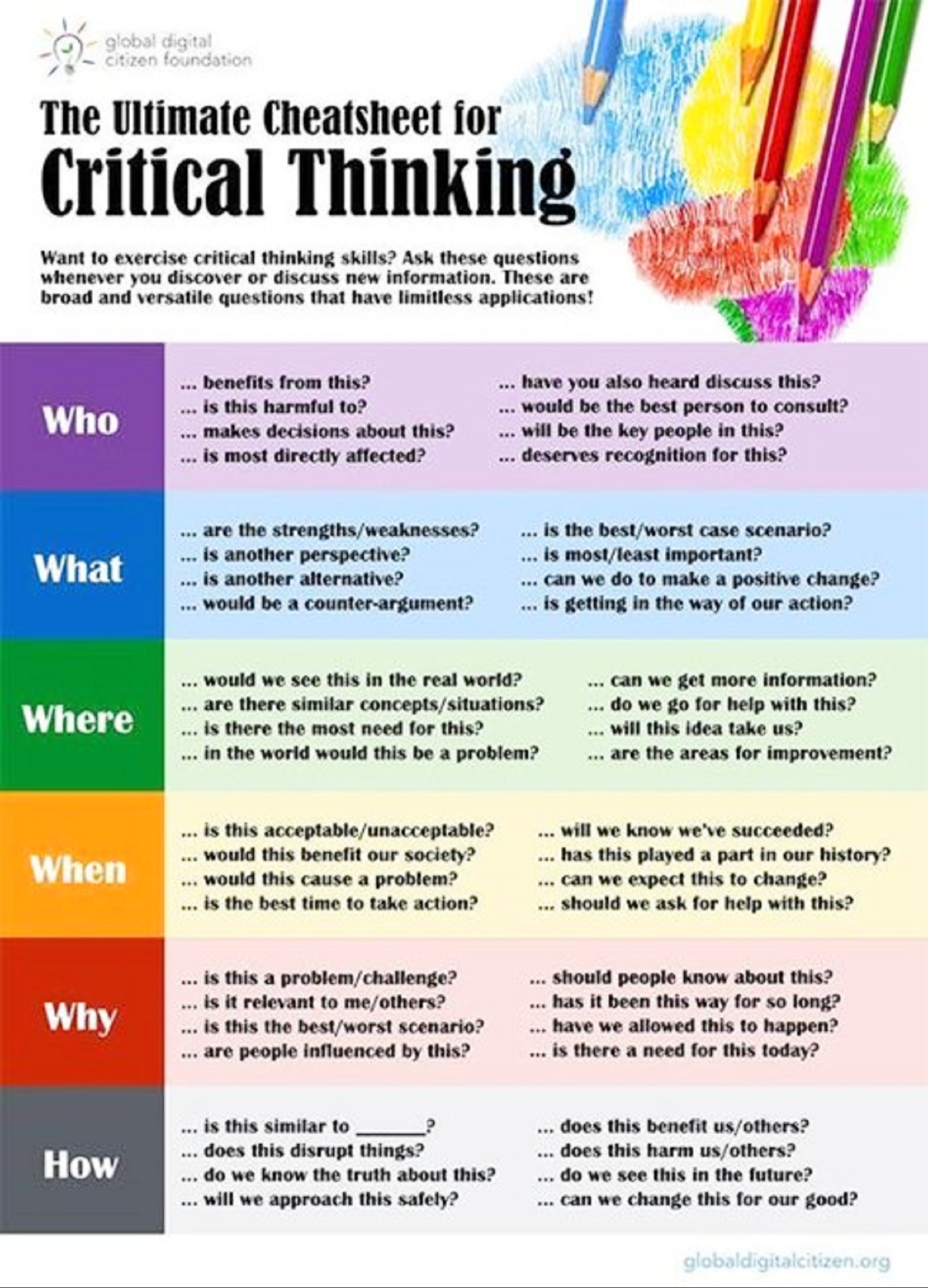
The Critical Thinking Skills Cheatsheet [Infographic]
Critical thinking skills truly matter in learning. Why? Because they are life skills we use every day of our lives. Everything from our work to our recreational pursuits, and all that’s in between, employs these unique and valuable abilities. Consciously developing them takes thought-provoking discussion and equally thought-provoking questions to get it going. Begin right here with the Critical Thinking Skills Cheatsheet. It’s a simple infographic offering questions that work to develop critical thinking on any given topic. Whenever your students discover or talk about new information, encourage them to use these questions for sparking debate and the sharing of opinions and insights among each other. Together they can work at building critical thinking skills in a collaborative and supportive atmosphere. Ref
Why would anyone be atheist?
Well, some of the reasons involve the contradictory characteristics in gods, religion is self-contradictory, gods are too similar to believers, gods just don’t matter, gods and believers behave immorally, evil in the world, faith is unreliable, etc.
“Why Not Believe? Reasons Why Atheists Don’t Believe in Gods”
By Austin Cline
1. Contradictory Characteristics in Gods: Theists often claim that their gods are perfect beings; they describe gods, however, in contradictory and incoherent ways. Numerous characteristics are attributed to their gods, some of which are impossible and some combinations of which are impossible. As described, it’s unlikely or impossible for these gods to exist. This doesn’t mean that no god could possibly exist, just that the one’s theists claim to believe in don’t.
2. Religion is Self-Contradictory: No religion is perfectly consistent when it comes to doctrines, ideas, and history. Every ideology, philosophy, and cultural tradition has inconsistencies and contradictions, so this shouldn’t be surprising — but other ideologies and traditions aren’t alleged to be divinely created or divinely sanctioned systems for following the wishes of a god. The state of religion in the world today is more consistent with the premise that they are man-made institutions.
3. Gods Are Too Similar to Believers: A few cultures, like ancient Greece, have postulated gods which appear to be as natural as human beings, but in general, gods are supernatural. This means that they are fundamentally different from human beings or anything on earth. Despite this, however, theists consistently describe their gods in ways that make the supernatural appear almost mundane. Gods share so many characteristics with humans that it has been argued that gods were made in the image of man.
4. Gods Just Don’t Matter: Theism means believing in the existence of at least one god, not that one necessarily cares much about any gods. In practice, though, theists typically place a great deal of importance on their god and insist that it and what it wants are the most important things a person can be concerned with. Depending upon the nature of a god, however, this isn’t necessarily true. It’s not obvious that the existence or desires of gods should matter to us.
5. Gods and Believers Behave Immorally: In most religions, gods are supposed to be the source of all morality. For most believers, their religion represents an institution for promoting perfect morality. In reality, though, religions are responsible for widespread immorality and gods have characteristics or histories which make them worse than the vilest human serial killer. No one would tolerate such behavior on the part of a person, but when with a god it all becomes laudable — even an example to follow.
6. Evil in the World: Closely associated with taking action that should be considered immoral is the fact that there is so much evil in the world today. If there are any gods, why don’t they act to eliminate it? The absence of substantive action against evil would be consistent with the existence of evil or at least indifferent gods, which is not impossible, but few people believe in such gods. Most claim that their gods are loving and powerful; the suffering on Earth makes their existence implausible.
7. Faith is Unreliable: A common characteristic of both theism and religion is their reliance on faith: belief in the existence of god and in the truth of religious doctrines is neither founded upon nor defended by logic, reason, evidence, or science. Instead, people are supposed to have faith — a position they wouldn’t consciously adopt with just about any other issue. Faith, though, is an unreliable guide to reality or means for acquiring knowledge.
Source: http://atheism.about.com/od/aboutatheism/p/whynotbelieve.htm


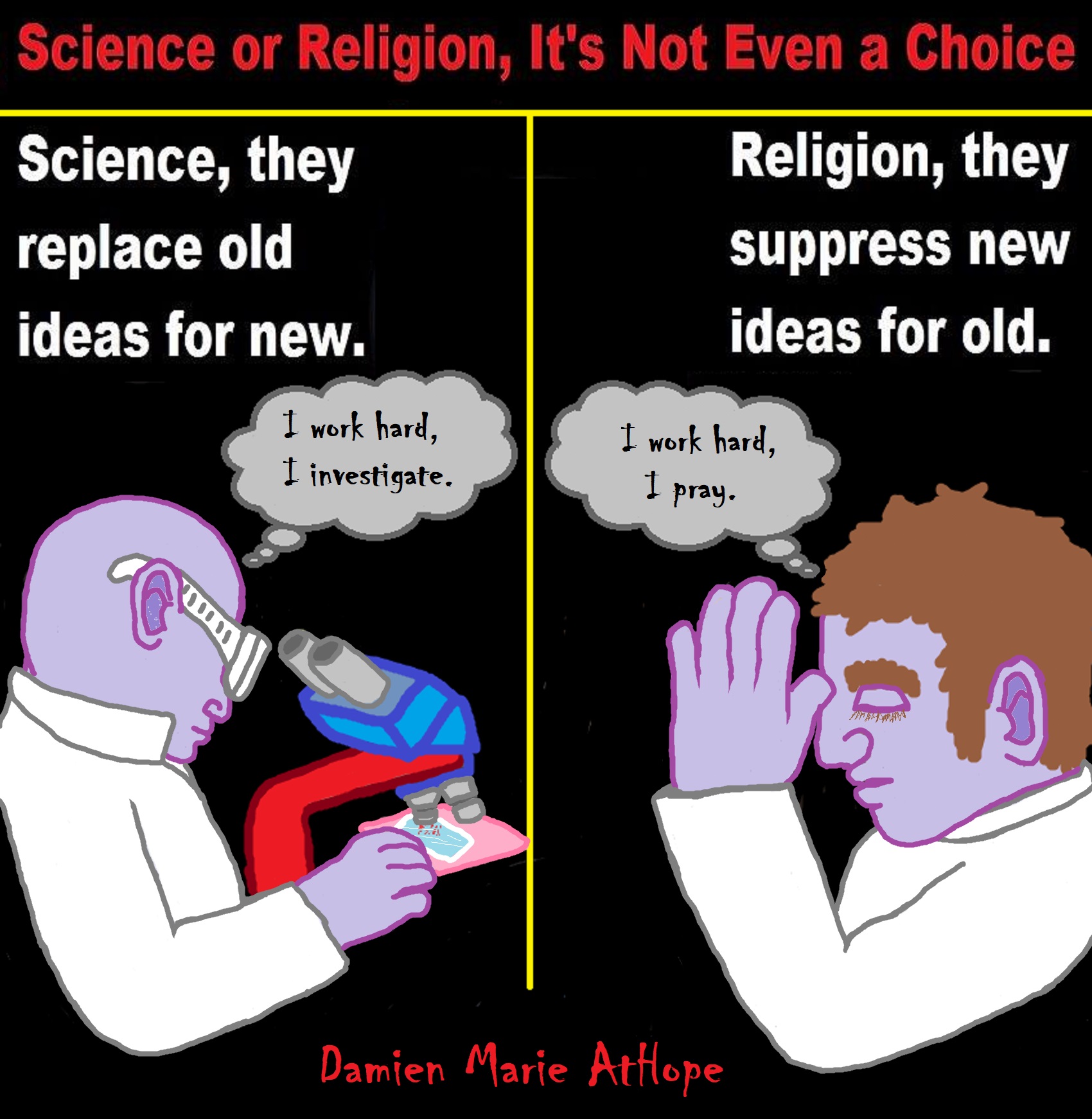


People don’t commonly teach religious history, even that of their own claimed religion. No, rather they teach a limited “pro their religion” history of their religion from a religious perspective favorable to the religion of choice.

Do you truly think “Religious Belief” is only a matter of some personal choice?
Do you not see how coercive one’s world of choice is limited to the obvious hereditary belief, in most religious choices available to the child of religious parents or caregivers? Religion is more commonly like a family, culture, society, etc. available belief that limits the belief choices of the child and that is when “Religious Belief” is not only a matter of some personal choice and when it becomes hereditary faith, not because of the quality of its alleged facts or proposed truths but because everyone else important to the child believes similarly so they do as well simply mimicking authority beliefs handed to them. Because children are raised in religion rather than being presented all possible choices but rather one limited dogmatic brand of “Religious Belief” where children only have a choice of following the belief as instructed, and then personally claim the faith hereditary belief seen in the confirming to the belief they have held themselves all their lives. This is obvious in statements asked and answered by children claiming a faith they barely understand but they do understand that their family believes “this or that” faith, so they feel obligated to believe it too. While I do agree that “Religious Belief” should only be a matter of some personal choice, it rarely is… End Hereditary Religion!

Animism: Respecting the Living World by Graham Harvey
“How have human cultures engaged with and thought about animals, plants, rocks, clouds, and other elements in their natural surroundings? Do animals and other natural objects have a spirit or soul? What is their relationship to humans? In this new study, Graham Harvey explores current and past animistic beliefs and practices of Native Americans, Maori, Aboriginal Australians, and eco-pagans. He considers the varieties of animism found in these cultures as well as their shared desire to live respectfully within larger natural communities. Drawing on his extensive casework, Harvey also considers the linguistic, performative, ecological, and activist implications of these different animisms.” ref
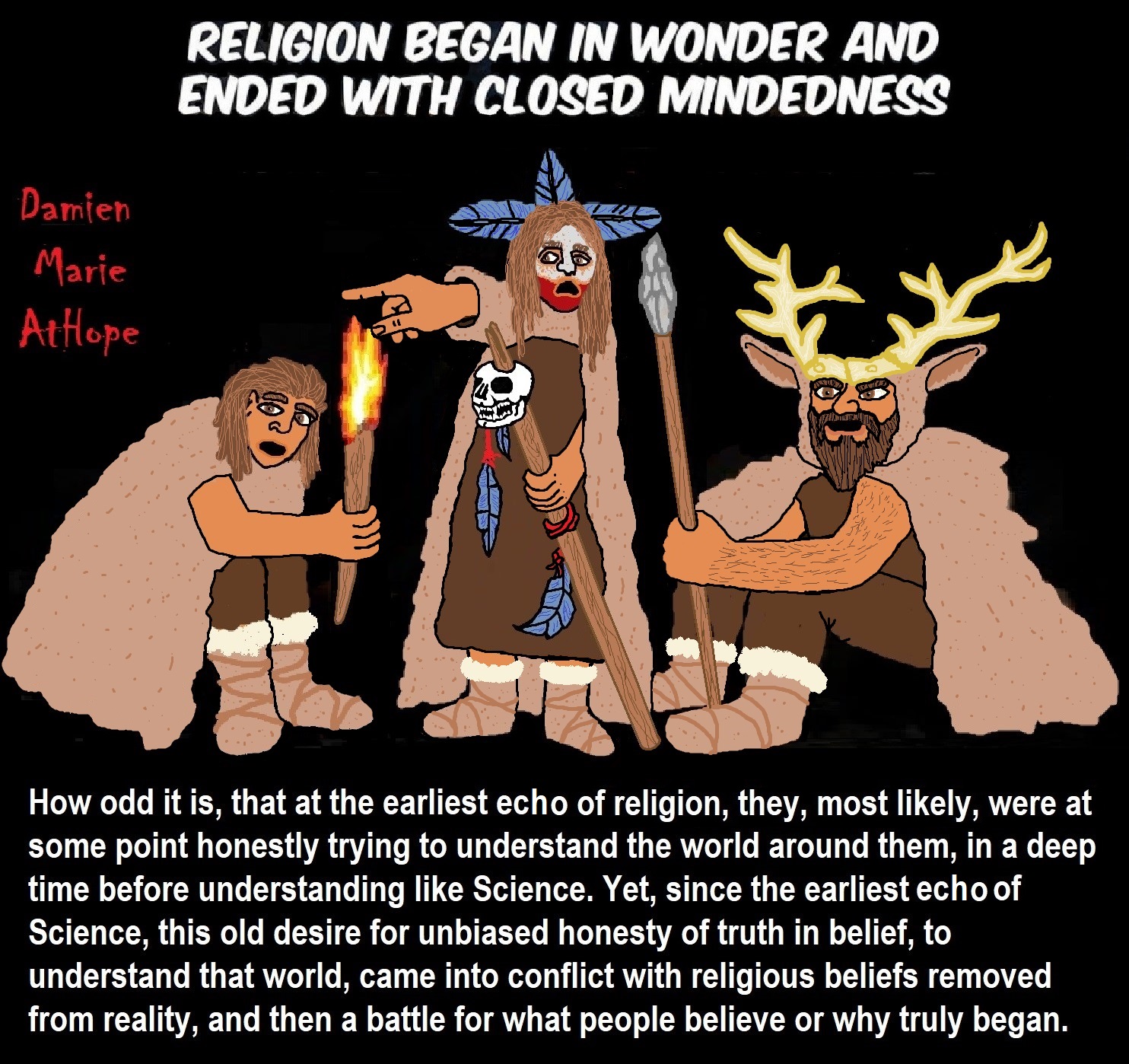
We are like believing machines we vacuum up ideas, like Velcro sticks to almost everything. We accumulate beliefs that we allow to negatively influence our lives, often without realizing it. Our willingness must be to alter skewed beliefs that impend our balance or reason, which allows us to achieve new positive thinking and accurate outcomes.

My thoughts on Religion Evolution with external links for more info:
- (Pre-Animism Africa mainly, but also Europe, and Asia at least 300,000 years ago), (Pre-Animism – Oxford Dictionaries)
- (Animism Africa around 100,000 years ago), (Animism – Britannica.com)
- (Totemism Europe around 50,000 years ago), (Totemism – Anthropology)
- (Shamanism Siberia around 30,000 years ago), (Shamanism – Britannica.com)
- (Paganism Turkey around 12,000 years ago), (Paganism – BBC Religion)
- (Progressed Organized Religion “Institutional Religion” Egypt around 5,000 years ago), (Ancient Egyptian Religion – Britannica.com)
- (CURRENT “World” RELIGIONS after 4,000 years ago) (Origin of Major Religions – Sacred Texts)
- (Early Atheistic Doubting at least by 2,600 years ago) (History of Atheism – Wikipedia)
“Religion is an Evolved Product” and Yes, Religion is Like Fear Given Wings…
Atheists talk about gods and religions for the same reason doctors talk about cancer, they are looking for a cure, or a firefighter talks about fires because they burn people and they care to stop them. We atheists too often feel a need to help the victims of mental slavery, held in the bondage that is the false beliefs of gods and the conspiracy theories of reality found in religions.
Understanding Religion Evolution:
- Pre-Animism (at least 300,000 years ago)
- Animism (Africa: 100,000 years ago)
- Totemism (Europe: 50,000 years ago)
- Shamanism (Siberia: 30,000 years ago)
- Paganism (Turkey: 12,000 years ago)
- Progressed organized religion (Egypt: 5,000 years ago), (Egypt, the First Dynasty 5,150 years ago)
- CURRENT “World” RELIGIONS (after 4,000 years ago)
- Early Atheistic Doubting (at least by 2,600 years ago)
“An Archaeological/Anthropological Understanding of Religion Evolution”
It seems ancient peoples had to survived amazing threats in a “dangerous universe (by superstition perceived as good and evil),” and human “immorality or imperfection of the soul” which was thought to affect the still living, leading to ancestor worship. This ancestor worship presumably led to the belief in supernatural beings, and then some of these were turned into the belief in gods. This feeble myth called gods were just a human conceived “made from nothing into something over and over, changing, again and again, taking on more as they evolve, all the while they are thought to be special,” but it is just supernatural animistic spirit-belief perceived as sacred.
Quick Evolution of Religion?
Pre-Animism (at least 300,000 years ago) pre-religion is a beginning that evolves into later Animism. So, Religion as we think of it, to me, all starts in a general way with Animism (Africa: 100,000 years ago) (theoretical belief in supernatural powers/spirits), then this is physically expressed in or with Totemism (Europe: 50,000 years ago) (theoretical belief in mythical relationship with powers/spirits through a totem item), which then enlists a full-time specific person to do this worship and believed interacting Shamanism (Siberia/Russia: 30,000 years ago) (theoretical belief in access and influence with spirits through ritual), and then there is the further employment of myths and gods added to all the above giving you Paganism (Turkey: 12,000 years ago) (often a lot more nature-based than most current top world religions, thus hinting to their close link to more ancient religious thinking it stems from). My hypothesis is expressed with an explanation of the building of a theatrical house (modern religions development). Progressed organized religion (Egypt: 5,000 years ago) with CURRENT “World” RELIGIONS (after 4,000 years ago).
Historically, in large city-state societies (such as Egypt or Iraq) starting around 5,000 years ago culminated to make religion something kind of new, a sociocultural-governmental-religious monarchy, where all or at least many of the people of such large city-state societies seem familiar with and committed to the existence of “religion” as the integrated life identity package of control dynamics with a fixed closed magical doctrine, but this juggernaut integrated religion identity package of Dogmatic-Propaganda certainly did not exist or if developed to an extent it was highly limited in most smaller prehistoric societies as they seem to lack most of the strong control dynamics with a fixed closed magical doctrine (magical beliefs could be at times be added or removed). Many people just want to see developed religious dynamics everywhere even if it is not. Instead, all that is found is largely fragments until the domestication of religion.
Religions, as we think of them today, are a new fad, even if they go back to around 6,000 years in the timeline of human existence, this amounts to almost nothing when seen in the long slow evolution of religion at least around 70,000 years ago with one of the oldest ritual worship. Stone Snake of South Africa: “first human worship” 70,000 years ago. This message of how religion and gods among them are clearly a man-made thing that was developed slowly as it was invented and then implemented peace by peace discrediting them all. Which seems to be a simple point some are just not grasping how devastating to any claims of truth when we can see the lie clearly in the archeological sites.
I wish people fought as hard for the actual values as they fight for the group/clan names political or otherwise they think support values. Every amount spent on war is theft to children in need of food or the homeless kept from shelter.
Here are several of my blog posts on history:
- To Find Truth You Must First Look
- (Magdalenian/Iberomaurusian) Connections to the First Paganists of the early Neolithic Near East Dating from around 17,000 to 12,000 Years Ago
- Natufians: an Ancient People at the Origins of Agriculture and Sedentary Life
- Possible Clan Leader/Special “MALE” Ancestor Totem Poles At Least 13,500 years ago?
- Jewish People with DNA at least 13,200 years old, Judaism, and the Origins of Some of its Ideas
- Baltic Reindeer Hunters: Swiderian, Lyngby, Ahrensburgian, and Krasnosillya cultures 12,020 to 11,020 years ago are evidence of powerful migratory waves during the last 13,000 years and a genetic link to Saami and the Finno-Ugric peoples.
- The Rise of Inequality: patriarchy and state hierarchy inequality
- Fertile Crescent 12,500 – 9,500 Years Ago: fertility and death cult belief system?
- 12,400 – 11,700 Years Ago – Kortik Tepe (Turkey) Pre/early-Agriculture Cultic Ritualism
- Ritualistic Bird Symbolism at Gobekli Tepe and its “Ancestor Cult”
- Male-Homosexual (female-like) / Trans-woman (female) Seated Figurine from Gobekli Tepe
- Could a 12,000-year-old Bull Geoglyph at Göbekli Tepe relate to older Bull and Female Art 25,000 years ago and Later Goddess and the Bull cults like Catal Huyuk?
- Sedentism and the Creation of goddesses around 12,000 years ago as well as male gods after 7,000 years ago.
- Alcohol, where Agriculture and Religion Become one? Such as Gobekli Tepe’s Ritualistic use of Grain as Food and Ritual Drink
- Neolithic Ritual Sites with T-Pillars and other Cultic Pillars
- Paganism: Goddesses around 12,000 years ago then Male Gods after 7,000 years ago
- First Patriarchy: Split of Women’s Status around 12,000 years ago & First Hierarchy: fall of Women’s Status around 5,000 years ago.
- Natufians: an Ancient People at the Origins of Agriculture and Sedentary Life
- J DNA and the Spread of Agricultural Religion (paganism)
- Paganism: an approximately 12,000-year-old belief system
- Paganism 12,000 years old: related to “Anarchism and Socialism” (Pre-Capitalism)
- Shaman burial in Israel 12,000 years ago and the Shamanism Phenomena
- Need to Mythicized: gods and goddesses
- 12,000 – 7,000 Years Ago – Paleo-Indian Culture (The Americas)
- 12,000 – 2,000 Years Ago – Indigenous-Scandinavians (Nordic)
- Norse did not wear helmets with horns?
- Pre-Pottery Neolithic Skull Cult around 11,500 to 8,400 Years Ago?
- 10,400 – 10,100 Years Ago, in Turkey the Nevail Cori Religious Settlement
- 9,000-6,500 Years Old Submerged Pre-Pottery/Pottery Neolithic Ritual Settlements off Israel’s Coast
- Catal Huyuk “first religious designed city” around 9,500 to 7,700 years ago (Turkey)
- Cultic Hunting at Catal Huyuk “first religious designed city”
- Special Items and Art as well as Special Elite Burials at Catal Huyuk
- New Rituals and Violence with the appearance of Pottery and People?
- Haplogroup N and its related Uralic Languages and Cultures
- Ainu people, Sámi people, Native Americans, the Ancient North Eurasians, and Paganistic-Shamanism with Totemism
- Ideas, Technology and People from Turkey, Europe, to China and Back again 9,000 to 5,000 years ago?
- First Pottery of Europe and the Related Cultures
- 9,000 years old Neolithic Artifacts Judean Desert and Hills Israel
- 9,000-7,000 years-old Sex and Death Rituals: Cult Sites in Israel, Jordan, and the Sinai
- 9,000-8500 year old Horned Female shaman Bad Dürrenberg Germany
- Neolithic Jewelry and the Spread of Farming in Europe Emerging out of West Turkey
- 8,600-year-old Tortoise Shells in Neolithic graves in central China have Early Writing and Shamanism
- Swing of the Mace: the rise of Elite, Forced Authority, and Inequality begin to Emerge 8,500 years ago?
- Migrations and Changing Europeans Beginning around 8,000 Years Ago
- My “Steppe-Anatolian-Kurgan hypothesis” 8,000/7,000 years ago
- Around 8,000-year-old Shared Idea of the Mistress of Animals, “Ritual” Motif
- Pre-Columbian Red-Paint (red ochre) Maritime Archaic Culture 8,000-3,000 years ago
- 7,522-6,522 years ago Linear Pottery culture which I think relates to Arcane Capitalism’s origins
- Arcane Capitalism: Primitive socialism, Primitive capital, Private ownership, Means of production, Market capitalism, Class discrimination, and Petite bourgeoisie (smaller capitalists)
- 7,500-4,750 years old Ritualistic Cucuteni-Trypillian culture of Moldova, Romania, and Ukraine
- Roots of a changing early society 7,200-6,700 years ago Jordan and Israel
- Agriculture religion (Paganism) with farming reached Britain between about 7,000 to 6,500 or so years ago and seemingly expressed in things like Western Europe’s Long Barrows
- My Thoughts on Possible Migrations of “R” DNA and Proto-Indo-European?
- “Millet” Spreading from China 7,022 years ago to Europe and related Language may have Spread with it leading to Proto-Indo-European
- Proto-Indo-European (PIE), ancestor of Indo-European languages: DNA, Society, Language, and Mythology
- The Dnieper–Donets culture and Asian varieties of Millet from China to the Black Sea region of Europe by 7,022 years ago
- Kurgan 6,000 years ago/dolmens 7,000 years ago: funeral, ritual, and other?
- 7,020 to 6,020-year-old Proto-Indo-European Homeland of Urheimat or proposed home of their Language and Religion
- Ancient Megaliths: Kurgan, Ziggurat, Pyramid, Menhir, Trilithon, Dolman, Kromlech, and Kromlech of Trilithons
- The Mytheme of Ancient North Eurasian Sacred-Dog belief and similar motifs are found in Indo-European, Native American, and Siberian comparative mythology
- Elite Power Accumulation: Ancient Trade, Tokens, Writing, Wealth, Merchants, and Priest-Kings
- Sacred Mounds, Mountains, Kurgans, and Pyramids may hold deep connections?
- Between 7,000-5,000 Years ago, rise of unequal hierarchy elite, leading to a “birth of the State” or worship of power, strong new sexism, oppression of non-elites, and the fall of Women’s equal status
- Paganism 7,000-5,000 years old: related to “Anarchism and Socialism” (Capitalism) (World War 0) Elite & their slaves
- Hell and Underworld mythologies starting maybe as far back as 7,000 to 5,000 years ago with the Proto-Indo-Europeans?
- The First Expression of the Male God around 7,000 years ago?
- White (light complexion skin) Bigotry and Sexism started 7,000 years ago?
- Around 7,000-year-old Shared Idea of the Divine Bird (Tutelary and/or Trickster spirit/deity), “Ritual” Motif
- Nekhbet an Ancient Egyptian Vulture Goddess and Tutelary Deity
- 6,720 to 4,920 years old Ritualistic Hongshan Culture of Inner Mongolia with 5,000-year-old Pyramid Mounds and Temples
- First proto-king in the Balkans, Varna culture around 6,500 years ago?
- 6,500–5,800 years ago in Israel Late Chalcolithic (Copper Age) Period in the Southern Levant Seems to Express Northern Levant Migrations, Cultural and Religious Transfer
- KING OF BEASTS: Master of Animals “Ritual” Motif, around 6,000 years old or older…
- Around 6000-year-old Shared Idea of the Solid Wheel & the Spoked Wheel-Shaped Ritual Motif
- “The Ghassulian Star,” a mysterious 6,000-year-old mural from Jordan; a Proto-Star of Ishtar, Star of Inanna or Star of Venus?
- Religious/Ritual Ideas, including goddesses and gods as well as ritual mounds or pyramids from Northeastern Asia at least 6,000 years old, seemingly filtering to Iran, Iraq, the Mediterranean, Europe, Egypt, and the Americas?
- Maykop (5,720–5,020 years ago) Caucasus region Bronze Age culture-related to Copper Age farmers from the south, influenced by the Ubaid period and Leyla-Tepe culture, as well as influencing the Kura-Araxes culture
- 5-600-year-old Tomb, Mummy, and First Bearded Male Figurine in a Grave
- Kura-Araxes Cultural 5,520 to 4,470 years old DNA traces to the Canaanites, Arabs, and Jews
- Minoan/Cretan (Keftiu) Civilization and Religion around 5,520 to 3,120 years ago
- Evolution Of Science at least by 5,500 years ago
- 5,500 Years old birth of the State, the rise of Hierarchy, and the fall of Women’s status
- “Jiroft culture” 5,100 – 4,200 years ago and the History of Iran
- Stonehenge: Paganistic Burial and Astrological Ritual Complex, England (5,100-3,600 years ago)
- Around 5,000-year-old Shared Idea of the “Tree of Life” Ritual Motif
- Complex rituals for elite, seen from China to Egypt, at least by 5,000 years ago
- Around 5,000 years ago: “Birth of the State” where Religion gets Military Power and Influence
- The Center of the World “Axis Mundi” and/or “Sacred Mountains” Mythology Could Relate to the Altai Mountains, Heart of the Steppe
- Progressed organized religion starts, an approximately 5,000-year-old belief system
- China’s Civilization between 5,000-3,000 years ago, was a time of war and class struggle, violent transition from free clans to a Slave or Elite society
- Origin of Logics is Naturalistic Observation at least by around 5,000 years ago.
- Paganism 5,000 years old: progressed organized religion and the state: related to “Anarchism and Socialism” (Kings and the Rise of the State)
- Ziggurats (multi-platform temples: 4,900 years old) to Pyramids (multi-platform tombs: 4,700 years old)
- Did a 4,520–4,420-year-old Volcano In Turkey Inspire the Bible God?
- Finland’s Horned Shaman and Pre-Horned-God at least 4,500 years ago?
- 4,000-year-Old Dolmens in Israel: A Connected Dolmen Religious Phenomenon?
- Creation myths: From chaos, Ex nihilo, Earth-diver, Emergence, World egg, and World parent
- Bronze Age “Ritual” connections of the Bell Beaker culture with the Corded Ware/Single Grave culture, which were related to the Yamnaya culture and Proto-Indo-European Languages/Religions
- Low Gods (Earth/ Tutelary deity), High Gods (Sky/Supreme deity), and Moralistic Gods (Deity enforcement/divine order)
- The exchange of people, ideas, and material-culture including, to me, the new god (Sky Father) and goddess (Earth Mother) religion between the Cucuteni-Trypillians and others which is then spread far and wide
- Koryaks: Indigenous People of the Russian Far East and Big Raven myths also found in Tlingit, Haida, Tsimshian, and other Indigenous People of North America
- 42 Principles Of Maat (Egyptian Goddess of the justice) around 4,400 years ago, 2000 Years Before Ten Commandments
- “Happy Easter” Well Happy Eostre/Ishter
- 4,320-3,820 years old “Shimao” (North China) site with Totemistic-Shamanistic Paganism and a Stepped Pyramid
- 4,250 to 3,400 Year old Stonehenge from Russia: Arkaim?
- 4,100-year-old beaker with medicinal & flowering plants in a grave of a woman in Scotland
- Early European Farmer ancestry, Kelif el Boroud people with the Cardial Ware culture, and the Bell Beaker culture Paganists too, spread into North Africa, then to the Canary Islands off West Africa
- Flood Accounts: Gilgamesh epic (4,100 years ago) Noah in Genesis (2,600 years ago)
- Paganism 4,000 years old: related to “Anarchism and Socialism” (First Moralistic gods, then the Origin time of Monotheism)
- When was the beginning: TIMELINE OF CURRENT RELIGIONS, which start around 4,000 years ago.
- Early Religions Thought to Express Proto-Monotheistic Systems around 4,000 years ago
- Kultepe? An archaeological site with a 4,000 years old women’s rights document.
- Single God Religions (Monotheism) = “Man-o-theism” started around 4,000 years ago with the Great Sky Spirit/God Tiān (天)?
- Confucianism’s Tiān (Shangdi god 4,000 years old): Supernaturalism, Pantheism or Theism?
- Yes, Your Male God is Ridiculous
- Mythology, a Lunar Deity is a Goddess or God of the Moon
- Sacred Land, Hills, and Mountains: Sami Mythology (Paganistic Shamanism)
- Horse Worship/Sacrifice: mythical union of Ruling Elite/Kingship and the Horse
- The Amorite/Amurru people’s God Amurru “Lord of the Steppe”, relates to the Origins of the Bible God?
- Bronze Age Exotic Trade Routes Spread Quite Far as well as Spread Religious Ideas with Them
- Sami and the Northern Indigenous Peoples Landscape, Language, and its Connection to Religion
- Prototype of Ancient Analemmatic Sundials around 3,900-3,150 years ago and a Possible Solar Connection to gods?
- Judaism is around 3,450 or 3,250 years old. (“Paleo-Hebrew” 3,000 years ago and Torah 2,500 years ago)
- The Weakening of Ancient Trade and the Strengthening of Religions around 3000 years ago?
- Are you aware that there are religions that worship women gods, explain now religion tears women down?
- Animistic, Totemistic, and Paganistic Superstition Origins of bible god and the bible’s Religion.
- Myths and Folklore: “Trickster gods and goddesses”
- Jews, Judaism, and the Origins of Some of its Ideas
- An Old Branch of Religion Still Giving Fruit: Sacred Trees
- Dating the BIBLE: naming names and telling times (written less than 3,000 years ago, provable to 2,200 years ago)
- Did a Volcano Inspire the bible god?
- Dené–Yeniseian language, Old Copper Complex, and Pre-Columbian Mound Builders?
- No “dinosaurs and humans didn’t exist together just because some think they are in the bible itself”
- Sacred Shit and Sacred Animals?
- Everyone Killed in the Bible Flood? “Nephilim” (giants)?
- Hey, Damien dude, I have a question for you regarding “the bible” Exodus.
- Archaeology Disproves the Bible
- Bible Battle, Just More, Bible Babble
- The Jericho Conquest lie?
- Canaanites and Israelites?
- Accurate Account on how did Christianity Began?
- Let’s talk about Christianity.
- So the 10 commandments isn’t anything to go by either right?
- Misinformed christian
- Debunking Jesus?
- Paulism vs Jesus
- Ok, you seem confused so let’s talk about Buddhism.
- Unacknowledged Buddhism: Gods, Savior, Demons, Rebirth, Heavens, Hells, and Terrorism
- His Foolishness The Dalai Lama
- Yin and Yang is sexist with an ORIGIN around 2,300 years ago?
- I Believe Archaeology, not Myths & Why Not, as the Religious Myths Already Violate Reason!
- Archaeological, Scientific, & Philosophic evidence shows the god myth is man-made nonsense.
- Aquatic Ape Theory/Hypothesis? As Always, Just Pseudoscience.
- Ancient Aliens Conspiracy Theorists are Pseudohistorians
- The Pseudohistoric and Pseudoscientific claims about “Bakoni Ruins” of South Africa
- Why do people think Religion is much more than supernaturalism and superstitionism?
- Religion is an Evolved Product
- Was the Value of Ancient Women Different?
- 1000 to 1100 CE, human sacrifice Cahokia Mounds a pre-Columbian Native American site
- Feminist atheists as far back as the 1800s?
- Promoting Religion as Real is Mentally Harmful to a Flourishing Humanity
- Screw All Religions and Their Toxic lies, they are all fraud
- Forget Religions’ Unfounded Myths, I Have Substantiated “Archaeology Facts.”
- Religion Dispersal throughout the World
- I Hate Religion Just as I Hate all Pseudoscience
- Exposing Scientology, Eckankar, Wicca and Other Nonsense?
- Main deity or religious belief systems
- Quit Trying to Invent Your God From the Scraps of Science.
- Archaeological, Scientific, & Philosophic evidence shows the god myth is man-made nonsense.
- Ancient Alien Conspiracy Theorists: Misunderstanding, Rhetoric, Misinformation, Fabrications, and Lies
- Misinformation, Distortion, and Pseudoscience in Talking with a Christian Creationist
- Judging the Lack of Goodness in Gods, Even the Norse God Odin
- Challenging the Belief in God-like Aliens and Gods in General
- A Challenge to Christian use of Torture Devices?
- Yes, Hinduism is a Religion
- Trump is One of the Most Reactionary Forces of Far-right Christian Extremism
- Was the Bull Head a Symbol of God? Yes!
- Primate Death Rituals
- Christian – “God and Christianity are objectively true”
- Australopithecus afarensis Death Ritual?
- You Claim Global Warming is a Hoax?
- Doubter of Science and Defamer of Atheists?
- I think that sounds like the Bible?
- History of the Antifa (“anti-fascist”) Movements
- Indianapolis Anti-Blasphemy Laws #Free Soheil Rally
- Damien, you repeat the golden rule in so many forms then you say religion is dogmatic?
- Science is a Trustable Methodology whereas Faith is not Trustable at all!
- Was I ever a believer, before I was an atheist?
- Atheists rise in reason
- Mistrust of science?
- Open to Talking About the Definition of ‘God’? But first, we address Faith.
- ‘United Monarchy’ full of splendor and power – Saul, David, and Solomon? Most likely not.
- Is there EXODUS ARCHAEOLOGY? The short answer is “no.”
- Lacking Proof of Bigfoots, Unicorns, and Gods is Just a Lack of Research?
- Religion and Politics: Faith Beliefs vs. Rational Thinking
- Hammer of Truth that lying pig RELIGION: challenged by an archaeologist
- “The Hammer of Truth” -ontology question- What do You Mean by That?
- Navigation of a bad argument: Ad Hominem vs. Attack
- Why is it Often Claimed that Gods have a Gender?
- Why are basically all monotheistic religions ones that have a male god?
- Shifting through the Claims in support of Faith
- Dear Mr. AtHope, The 20th Century is an Indictment of Secularism and a Failed Atheist Century
- An Understanding of the Worldwide Statistics and Dynamics of Terrorist Incidents and Suicide Attacks
- Intoxication and Evolution? Addressing and Assessing the “Stoned Ape” or “Drunken Monkey” Theories as Catalysts in Human Evolution
- Sacred Menstrual cloth? Inanna’s knot, Isis knot, and maybe Ma’at’s feather?
- Damien, why don’t the Hebrews accept the bible stories?
- Dealing with a Troll and Arguing Over Word Meaning
- Knowledge without Belief? Justified beliefs or disbeliefs worthy of Knowledge?
- Afrocentrism and African Religions
- Crecganford @crecganford offers history & stories of the people, places, gods, & culture
- Empiricism-Denier?
I am not an academic. I am a revolutionary that teaches in public, in places like social media, and in the streets. I am not a leader by some title given but from my commanding leadership style of simply to start teaching everywhere to everyone, all manner of positive education.

ref, ref, ref, ref, ref, ref, ref, ref, ref, ref, ref, ref, ref, ref, ref, ref, ref, ref, ref, ref, ref
Low Gods “Earth” or Tutelary deity and High Gods “Sky” or Supreme deity
“An Earth goddess is a deification of the Earth. Earth goddesses are often associated with the “chthonic” deities of the underworld. Ki and Ninhursag are Mesopotamian earth goddesses. In Greek mythology, the Earth is personified as Gaia, corresponding to Roman Terra, Indic Prithvi/Bhūmi, etc. traced to an “Earth Mother” complementary to the “Sky Father” in Proto-Indo-European religion. Egyptian mythology exceptionally has a sky goddess and an Earth god.” ref
“A mother goddess is a goddess who represents or is a personification of nature, motherhood, fertility, creation, destruction or who embodies the bounty of the Earth. When equated with the Earth or the natural world, such goddesses are sometimes referred to as Mother Earth or as the Earth Mother. In some religious traditions or movements, Heavenly Mother (also referred to as Mother in Heaven or Sky Mother) is the wife or feminine counterpart of the Sky father or God the Father.” ref
“Any masculine sky god is often also king of the gods, taking the position of patriarch within a pantheon. Such king gods are collectively categorized as “sky father” deities, with a polarity between sky and earth often being expressed by pairing a “sky father” god with an “earth mother” goddess (pairings of a sky mother with an earth father are less frequent). A main sky goddess is often the queen of the gods and may be an air/sky goddess in her own right, though she usually has other functions as well with “sky” not being her main. In antiquity, several sky goddesses in ancient Egypt, Mesopotamia, and the Near East were called Queen of Heaven. Neopagans often apply it with impunity to sky goddesses from other regions who were never associated with the term historically. The sky often has important religious significance. Many religions, both polytheistic and monotheistic, have deities associated with the sky.” ref
“In comparative mythology, sky father is a term for a recurring concept in polytheistic religions of a sky god who is addressed as a “father”, often the father of a pantheon and is often either a reigning or former King of the Gods. The concept of “sky father” may also be taken to include Sun gods with similar characteristics, such as Ra. The concept is complementary to an “earth mother“. “Sky Father” is a direct translation of the Vedic Dyaus Pita, etymologically descended from the same Proto-Indo-European deity name as the Greek Zeûs Pater and Roman Jupiter and Germanic Týr, Tir or Tiwaz, all of which are reflexes of the same Proto-Indo-European deity’s name, *Dyēus Ph₂tḗr. While there are numerous parallels adduced from outside of Indo-European mythology, there are exceptions (e.g. In Egyptian mythology, Nut is the sky mother and Geb is the earth father).” ref
Tutelary deity
“A tutelary (also tutelar) is a deity or spirit who is a guardian, patron, or protector of a particular place, geographic feature, person, lineage, nation, culture, or occupation. The etymology of “tutelary” expresses the concept of safety and thus of guardianship. In late Greek and Roman religion, one type of tutelary deity, the genius, functions as the personal deity or daimon of an individual from birth to death. Another form of personal tutelary spirit is the familiar spirit of European folklore.” ref
“A tutelary (also tutelar) in Korean shamanism, jangseung and sotdae were placed at the edge of villages to frighten off demons. They were also worshiped as deities. Seonangshin is the patron deity of the village in Korean tradition and was believed to embody the Seonangdang. In Philippine animism, Diwata or Lambana are deities or spirits that inhabit sacred places like mountains and mounds and serve as guardians. Such as: Maria Makiling is the deity who guards Mt. Makiling and Maria Cacao and Maria Sinukuan. In Shinto, the spirits, or kami, which give life to human bodies come from nature and return to it after death. Ancestors are therefore themselves tutelaries to be worshiped. And similarly, Native American beliefs such as Tonás, tutelary animal spirit among the Zapotec and Totems, familial or clan spirits among the Ojibwe, can be animals.” ref
“A tutelary (also tutelar) in Austronesian beliefs such as: Atua (gods and spirits of the Polynesian peoples such as the Māori or the Hawaiians), Hanitu (Bunun of Taiwan‘s term for spirit), Hyang (Kawi, Sundanese, Javanese, and Balinese Supreme Being, in ancient Java and Bali mythology and this spiritual entity, can be either divine or ancestral), Kaitiaki (New Zealand Māori term used for the concept of guardianship, for the sky, the sea, and the land), Kawas (mythology) (divided into 6 groups: gods, ancestors, souls of the living, spirits of living things, spirits of lifeless objects, and ghosts), Tiki (Māori mythology, Tiki is the first man created by either Tūmatauenga or Tāne and represents deified ancestors found in most Polynesian cultures). ” ref, ref, ref, ref, ref, ref, ref
Mesopotamian Tutelary Deities can be seen as ones related to City-States
“Historical city-states included Sumerian cities such as Uruk and Ur; Ancient Egyptian city-states, such as Thebes and Memphis; the Phoenician cities (such as Tyre and Sidon); the five Philistine city-states; the Berber city-states of the Garamantes; the city-states of ancient Greece (the poleis such as Athens, Sparta, Thebes, and Corinth); the Roman Republic (which grew from a city-state into a vast empire); the Italian city-states from the Middle Ages to the early modern period, such as Florence, Siena, Ferrara, Milan (which as they grew in power began to dominate neighboring cities) and Genoa and Venice, which became powerful thalassocracies; the Mayan and other cultures of pre-Columbian Mesoamerica (including cities such as Chichen Itza, Tikal, Copán and Monte Albán); the central Asian cities along the Silk Road; the city-states of the Swahili coast; Ragusa; states of the medieval Russian lands such as Novgorod and Pskov; and many others.” ref
“The Uruk period (ca. 4000 to 3100 BCE; also known as Protoliterate period) of Mesopotamia, named after the Sumerian city of Uruk, this period saw the emergence of urban life in Mesopotamia and the Sumerian civilization. City-States like Uruk and others had a patron tutelary City Deity along with a Priest-King.” ref
“Chinese folk religion, both past, and present, includes myriad tutelary deities. Exceptional individuals, highly cultivated sages, and prominent ancestors can be deified and honored after death. Lord Guan is the patron of military personnel and police, while Mazu is the patron of fishermen and sailors. Such as Tu Di Gong (Earth Deity) is the tutelary deity of a locality, and each individual locality has its own Earth Deity and Cheng Huang Gong (City God) is the guardian deity of an individual city, worshipped by local officials and locals since imperial times.” ref
“A tutelary (also tutelar) in Hinduism, personal tutelary deities are known as ishta-devata, while family tutelary deities are known as Kuladevata. Gramadevata are guardian deities of villages. Devas can also be seen as tutelary. Shiva is the patron of yogis and renunciants. City goddesses include: Mumbadevi (Mumbai), Sachchika (Osian); Kuladevis include: Ambika (Porwad), and Mahalakshmi. In NorthEast India Meitei mythology and religion (Sanamahism) of Manipur, there are various types of tutelary deities, among which Lam Lais are the most predominant ones. Tibetan Buddhism has Yidam as a tutelary deity. Dakini is the patron of those who seek knowledge.” ref
“A tutelary (also tutelar) The Greeks also thought deities guarded specific places: for instance, Athena was the patron goddess of the city of Athens. Socrates spoke of hearing the voice of his personal spirit or daimonion:
You have often heard me speak of an oracle or sign which comes to me … . This sign I have had ever since I was a child. The sign is a voice which comes to me and always forbids me to do something which I am going to do, but never commands me to do anything, and this is what stands in the way of my being a politician.” ref
“Tutelary deities who guard and preserve a place or a person are fundamental to ancient Roman religion. The tutelary deity of a man was his Genius, that of a woman her Juno. In the Imperial era, the Genius of the Emperor was a focus of Imperial cult. An emperor might also adopt a major deity as his personal patron or tutelary, as Augustus did Apollo. Precedents for claiming the personal protection of a deity were established in the Republican era, when for instance the Roman dictator Sulla advertised the goddess Victory as his tutelary by holding public games (ludi) in her honor.” ref
“Each town or city had one or more tutelary deities, whose protection was considered particularly vital in time of war and siege. Rome itself was protected by a goddess whose name was to be kept ritually secret on pain of death (for a supposed case, see Quintus Valerius Soranus). The Capitoline Triad of Juno, Jupiter, and Minerva were also tutelaries of Rome. The Italic towns had their own tutelary deities. Juno often had this function, as at the Latin town of Lanuvium and the Etruscan city of Veii, and was often housed in an especially grand temple on the arx (citadel) or other prominent or central location. The tutelary deity of Praeneste was Fortuna, whose oracle was renowned.” ref
“The Roman ritual of evocatio was premised on the belief that a town could be made vulnerable to military defeat if the power of its tutelary deity were diverted outside the city, perhaps by the offer of superior cult at Rome. The depiction of some goddesses such as the Magna Mater (Great Mother, or Cybele) as “tower-crowned” represents their capacity to preserve the city. A town in the provinces might adopt a deity from within the Roman religious sphere to serve as its guardian, or syncretize its own tutelary with such; for instance, a community within the civitas of the Remi in Gaul adopted Apollo as its tutelary, and at the capital of the Remi (present-day Rheims), the tutelary was Mars Camulus.” ref
Household deity (a kind of or related to a Tutelary deity)
“A household deity is a deity or spirit that protects the home, looking after the entire household or certain key members. It has been a common belief in paganism as well as in folklore across many parts of the world. Household deities fit into two types; firstly, a specific deity – typically a goddess – often referred to as a hearth goddess or domestic goddess who is associated with the home and hearth, such as the ancient Greek Hestia.” ref
“The second type of household deities are those that are not one singular deity, but a type, or species of animistic deity, who usually have lesser powers than major deities. This type was common in the religions of antiquity, such as the Lares of ancient Roman religion, the Gashin of Korean shamanism, and Cofgodas of Anglo-Saxon paganism. These survived Christianisation as fairy-like creatures existing in folklore, such as the Anglo-Scottish Brownie and Slavic Domovoy.” ref
“Household deities were usually worshipped not in temples but in the home, where they would be represented by small idols (such as the teraphim of the Bible, often translated as “household gods” in Genesis 31:19 for example), amulets, paintings, or reliefs. They could also be found on domestic objects, such as cosmetic articles in the case of Tawaret. The more prosperous houses might have a small shrine to the household god(s); the lararium served this purpose in the case of the Romans. The gods would be treated as members of the family and invited to join in meals, or be given offerings of food and drink.” ref
“In many religions, both ancient and modern, a god would preside over the home. Certain species, or types, of household deities, existed. An example of this was the Roman Lares. Many European cultures retained house spirits into the modern period. Some examples of these include:
- Brownie (Scotland and England) or Hob (England) / Kobold (Germany) / Goblin / Hobgoblin
- Domovoy (Slavic)
- Nisse (Norwegian or Danish) / Tomte (Swedish) / Tonttu (Finnish)
- Húsvættir (Norse)” ref
“Although the cosmic status of household deities was not as lofty as that of the Twelve Olympians or the Aesir, they were also jealous of their dignity and also had to be appeased with shrines and offerings, however humble. Because of their immediacy they had arguably more influence on the day-to-day affairs of men than the remote gods did. Vestiges of their worship persisted long after Christianity and other major religions extirpated nearly every trace of the major pagan pantheons. Elements of the practice can be seen even today, with Christian accretions, where statues to various saints (such as St. Francis) protect gardens and grottos. Even the gargoyles found on older churches, could be viewed as guardians partitioning a sacred space.” ref
“For centuries, Christianity fought a mop-up war against these lingering minor pagan deities, but they proved tenacious. For example, Martin Luther‘s Tischreden have numerous – quite serious – references to dealing with kobolds. Eventually, rationalism and the Industrial Revolution threatened to erase most of these minor deities, until the advent of romantic nationalism rehabilitated them and embellished them into objects of literary curiosity in the 19th century. Since the 20th century this literature has been mined for characters for role-playing games, video games, and other fantasy personae, not infrequently invested with invented traits and hierarchies somewhat different from their mythological and folkloric roots.” ref
“In contradistinction to both Herbert Spencer and Edward Burnett Tylor, who defended theories of animistic origins of ancestor worship, Émile Durkheim saw its origin in totemism. In reality, this distinction is somewhat academic, since totemism may be regarded as a particularized manifestation of animism, and something of a synthesis of the two positions was attempted by Sigmund Freud. In Freud’s Totem and Taboo, both totem and taboo are outward expressions or manifestations of the same psychological tendency, a concept which is complementary to, or which rather reconciles, the apparent conflict. Freud preferred to emphasize the psychoanalytic implications of the reification of metaphysical forces, but with particular emphasis on its familial nature. This emphasis underscores, rather than weakens, the ancestral component.” ref
“William Edward Hearn, a noted classicist, and jurist, traced the origin of domestic deities from the earliest stages as an expression of animism, a belief system thought to have existed also in the neolithic, and the forerunner of Indo-European religion. In his analysis of the Indo-European household, in Chapter II “The House Spirit”, Section 1, he states:
The belief which guided the conduct of our forefathers was … the spirit rule of dead ancestors.” ref
“In Section 2 he proceeds to elaborate:
It is thus certain that the worship of deceased ancestors is a vera causa, and not a mere hypothesis. …
In the other European nations, the Slavs, the Teutons, and the Kelts, the House Spirit appears with no less distinctness. … [T]he existence of that worship does not admit of doubt. … The House Spirits had a multitude of other names which it is needless here to enumerate, but all of which are more or less expressive of their friendly relations with man. … In [England] … [h]e is the Brownie. … In Scotland this same Brownie is well known. He is usually described as attached to particular families, with whom he has been known to reside for centuries, threshing the corn, cleaning the house, and performing similar household tasks. His favorite gratification was milk and honey.” ref

ref, ref, ref, ref, ref, ref, ref, ref, ref, ref, ref, ref, ref, ref, ref, ref, ref
“These ideas are my speculations from the evidence.”
I am still researching the “god‘s origins” all over the world. So you know, it is very complicated but I am smart and willing to look, DEEP, if necessary, which going very deep does seem to be needed here, when trying to actually understand the evolution of gods and goddesses. I am sure of a few things and less sure of others, but even in stuff I am not fully grasping I still am slowly figuring it out, to explain it to others. But as I research more I am understanding things a little better, though I am still working on understanding it all or something close and thus always figuring out more.
Sky Father/Sky God?
“Egyptian: (Nut) Sky Mother and (Geb) Earth Father” (Egypt is different but similar)
Turkic/Mongolic: (Tengri/Tenger Etseg) Sky Father and (Eje/Gazar Eej) Earth Mother *Transeurasian*
Hawaiian: (Wākea) Sky Father and (Papahānaumoku) Earth Mother *Austronesian*
New Zealand/ Māori: (Ranginui) Sky Father and (Papatūānuku) Earth Mother *Austronesian*
Proto-Indo-European: (Dyḗus/Dyḗus ph₂tḗr) Sky Father and (Dʰéǵʰōm/Pleth₂wih₁) Earth Mother
Indo-Aryan: (Dyaus Pita) Sky Father and (Prithvi Mata) Earth Mother *Indo-European*
Italic: (Jupiter) Sky Father and (Juno) Sky Mother *Indo-European*
Etruscan: (Tinia) Sky Father and (Uni) Sky Mother *Tyrsenian/Italy Pre–Indo-European*
Hellenic/Greek: (Zeus) Sky Father and (Hera) Sky Mother who started as an “Earth Goddess” *Indo-European*
Nordic: (Dagr) Sky Father and (Nótt) Sky Mother *Indo-European*
Slavic: (Perun) Sky Father and (Mokosh) Earth Mother *Indo-European*
Illyrian: (Deipaturos) Sky Father and (Messapic Damatura’s “earth-mother” maybe) Earth Mother *Indo-European*
Albanian: (Zojz) Sky Father and (?) *Indo-European*
Baltic: (Perkūnas) Sky Father and (Saulė) Sky Mother *Indo-European*
Germanic: (Týr) Sky Father and (?) *Indo-European*
Colombian-Muisca: (Bochica) Sky Father and (Huythaca) Sky Mother *Chibchan*
Aztec: (Quetzalcoatl) Sky Father and (Xochiquetzal) Sky Mother *Uto-Aztecan*
Incan: (Viracocha) Sky Father and (Mama Runtucaya) Sky Mother *Quechuan*
China: (Tian/Shangdi) Sky Father and (Dì) Earth Mother *Sino-Tibetan*
Sumerian, Assyrian and Babylonian: (An/Anu) Sky Father and (Ki) Earth Mother
Finnish: (Ukko) Sky Father and (Akka) Earth Mother *Finno-Ugric*
Sami: (Horagalles) Sky Father and (Ravdna) Earth Mother *Finno-Ugric*
Puebloan-Zuni: (Ápoyan Ta’chu) Sky Father and (Áwitelin Tsíta) Earth Mother
Puebloan-Hopi: (Tawa) Sky Father and (Kokyangwuti/Spider Woman/Grandmother) Earth Mother *Uto-Aztecan*
Puebloan-Navajo: (Tsohanoai) Sky Father and (Estsanatlehi) Earth Mother *Na-Dene*
ref, ref, ref, ref, ref, ref, ref, ref, ref, ref, ref, ref, ref, ref, ref, ref, ref, ref, ref, ref, ref, ref, ref, ref, ref, ref, ref
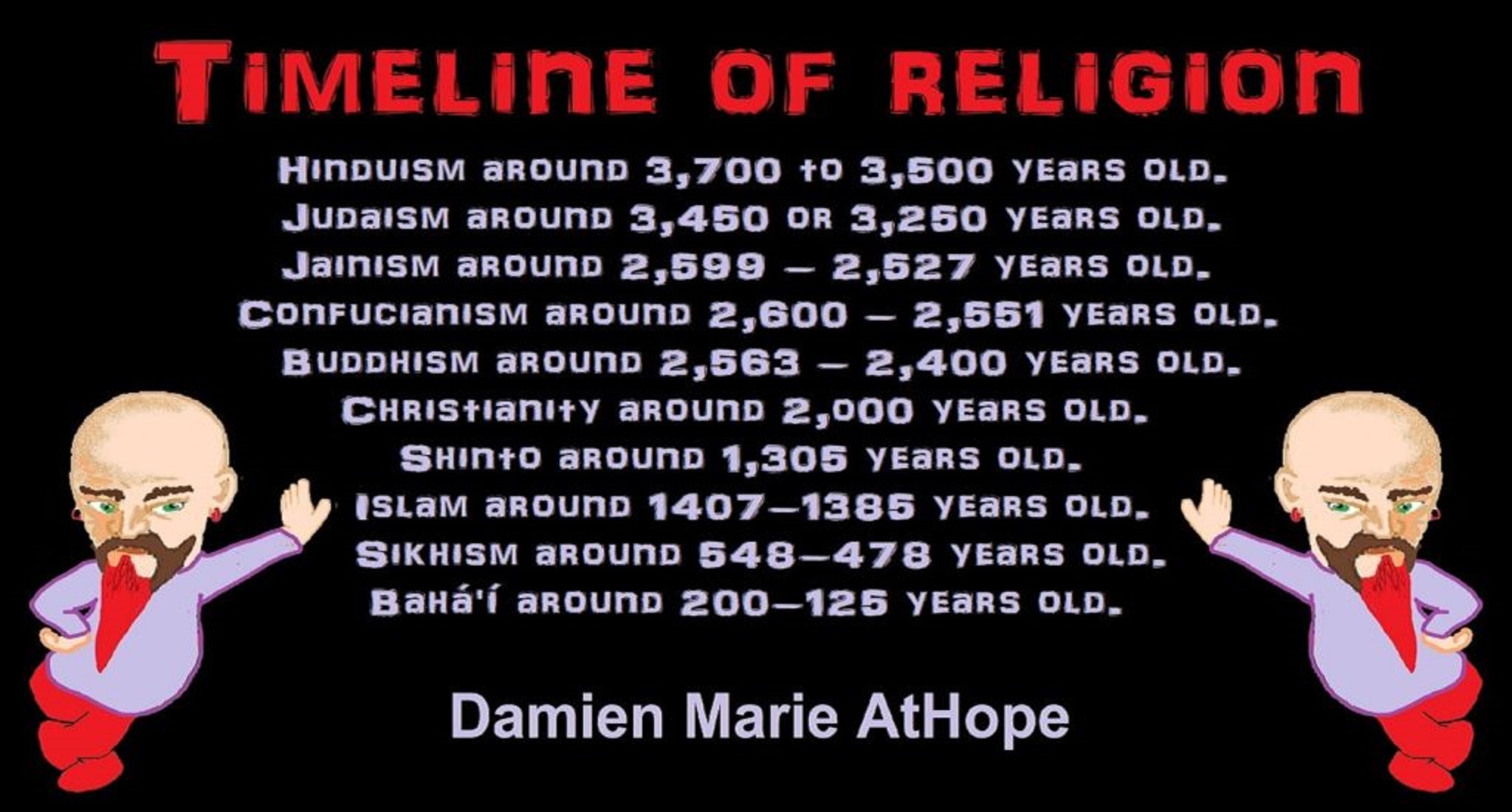
Hinduism around 3,700 to 3,500 years old. ref
Judaism around 3,450 or 3,250 years old. (The first writing in the bible was “Paleo-Hebrew” dated to around 3,000 years ago Khirbet Qeiyafa is the site of an ancient fortress city overlooking the Elah Valley. And many believe the religious Jewish texts were completed around 2,500) ref, ref
Judaism is around 3,450 or 3,250 years old. (“Paleo-Hebrew” 3,000 years ago and Torah 2,500 years ago)
“Judaism is an Abrahamic, its roots as an organized religion in the Middle East during the Bronze Age. Some scholars argue that modern Judaism evolved from Yahwism, the religion of ancient Israel and Judah, by the late 6th century BCE, and is thus considered to be one of the oldest monotheistic religions.” ref
“Yahwism is the name given by modern scholars to the religion of ancient Israel, essentially polytheistic, with a plethora of gods and goddesses. Heading the pantheon was Yahweh, the national god of the Israelite kingdoms of Israel and Judah, with his consort, the goddess Asherah; below them were second-tier gods and goddesses such as Baal, Shamash, Yarikh, Mot, and Astarte, all of whom had their own priests and prophets and numbered royalty among their devotees, and a third and fourth tier of minor divine beings, including the mal’ak, the messengers of the higher gods, who in later times became the angels of Judaism, Christianity and Islam. Yahweh, however, was not the ‘original’ god of Israel “Isra-El”; it is El, the head of the Canaanite pantheon, whose name forms the basis of the name “Israel”, and none of the Old Testament patriarchs, the tribes of Israel, the Judges, or the earliest monarchs, have a Yahwistic theophoric name (i.e., one incorporating the name of Yahweh).” ref
“El is a Northwest Semitic word meaning “god” or “deity“, or referring (as a proper name) to any one of multiple major ancient Near Eastern deities. A rarer form, ‘ila, represents the predicate form in Old Akkadian and in Amorite. The word is derived from the Proto-Semitic *ʔil-, meaning “god”. Specific deities known as ‘El or ‘Il include the supreme god of the ancient Canaanite religion and the supreme god of East Semitic speakers in Mesopotamia’s Early Dynastic Period. ʼĒl is listed at the head of many pantheons. In some Canaanite and Ugaritic sources, ʼĒl played a role as father of the gods, of creation, or both. For example, in the Ugaritic texts, ʾil mlk is understood to mean “ʼĒl the King” but ʾil hd as “the god Hadad“. The Semitic root ʾlh (Arabic ʾilāh, Aramaic ʾAlāh, ʾElāh, Hebrew ʾelōah) may be ʾl with a parasitic h, and ʾl may be an abbreviated form of ʾlh. In Ugaritic the plural form meaning “gods” is ʾilhm, equivalent to Hebrew ʾelōhîm “powers”. In the Hebrew texts this word is interpreted as being semantically singular for “god” by biblical commentators. However the documentary hypothesis for the Old Testament (corresponds to the Jewish Torah) developed originally in the 1870s, identifies these that different authors – the Jahwist, Elohist, Deuteronomist, and the Priestly source – were responsible for editing stories from a polytheistic religion into those of a monotheistic religion. Inconsistencies that arise between monotheism and polytheism in the texts are reflective of this hypothesis.” ref
Jainism around 2,599 – 2,527 years old. ref
Confucianism around 2,600 – 2,551 years old. ref
Buddhism around 2,563/2,480 – 2,483/2,400 years old. ref
Christianity around 2,o00 years old. ref
Shinto around 1,305 years old. ref
Islam around 1407–1385 years old. ref

Knowledge to Ponder:
Stars/Astrology:
- Possibly, around 30,000 years ago (in simpler form) to 6,000 years ago, Stars/Astrology are connected to Ancestors, Spirit Animals, and Deities.
- The star also seems to be a possible proto-star for Star of Ishtar, Star of Inanna, or Star of Venus.
- Around 7,000 to 6,000 years ago, Star Constellations/Astrology have connections to the “Kurgan phenomenon” of below-ground “mound” stone/wood burial structures and “Dolmen phenomenon” of above-ground stone burial structures.
- Around 6,500–5,800 years ago, The Northern Levant migrations into Jordon and Israel in the Southern Levant brought new cultural and religious transfer from Turkey and Iran.
- “The Ghassulian Star,” a mysterious 6,000-year-old mural from Jordan may have connections to the European paganstic kurgan/dolmens phenomenon.
“Astrology is a range of divinatory practices, recognized as pseudoscientific since the 18th century, that claim to discern information about human affairs and terrestrial events by studying the apparent positions of celestial objects. Different cultures have employed forms of astrology since at least the 2nd millennium BCE, these practices having originated in calendrical systems used to predict seasonal shifts and to interpret celestial cycles as signs of divine communications. Most, if not all, cultures have attached importance to what they observed in the sky, and some—such as the Hindus, Chinese, and the Maya—developed elaborate systems for predicting terrestrial events from celestial observations. Western astrology, one of the oldest astrological systems still in use, can trace its roots to 19th–17th century BCE Mesopotamia, from where it spread to Ancient Greece, Rome, the Islamicate world and eventually Central and Western Europe. Contemporary Western astrology is often associated with systems of horoscopes that purport to explain aspects of a person’s personality and predict significant events in their lives based on the positions of celestial objects; the majority of professional astrologers rely on such systems.” ref
Around 5,500 years ago, Science evolves, The first evidence of science was 5,500 years ago and was demonstrated by a body of empirical, theoretical, and practical knowledge about the natural world. ref
Around 5,000 years ago, Origin of Logics is a Naturalistic Observation (principles of valid reasoning, inference, & demonstration) ref
Around 4,150 to 4,000 years ago: The earliest surviving versions of the Sumerian Epic of Gilgamesh, which was originally titled “He who Saw the Deep” (Sha naqba īmuru) or “Surpassing All Other Kings” (Shūtur eli sharrī) were written. ref
Hinduism:
- 3,700 years ago or so, the oldest of the Hindu Vedas (scriptures), the Rig Veda was composed.
- 3,500 years ago or so, the Vedic Age began in India after the collapse of the Indus Valley Civilization.
Judaism:
- around 3,000 years ago, the first writing in the bible was “Paleo-Hebrew”
- around 2,500 years ago, many believe the religious Jewish texts were completed
Myths: The bible inspired religion is not just one religion or one myth but a grouping of several religions and myths
- Around 3,450 or 3,250 years ago, according to legend, is the traditionally accepted period in which the Israelite lawgiver, Moses, provided the Ten Commandments.
- Around 2,500 to 2,400 years ago, a collection of ancient religious writings by the Israelites based primarily upon the Hebrew Bible, Tanakh, or Old Testament is the first part of Christianity’s bible.
- Around 2,400 years ago, the most accepted hypothesis is that the canon was formed in stages, first the Pentateuch (Torah).
- Around 2,140 to 2,116 years ago, the Prophets was written during the Hasmonean dynasty, and finally the remaining books.
- Christians traditionally divide the Old Testament into four sections:
- The first five books or Pentateuch (Torah).
- The proposed history books telling the history of the Israelites from their conquest of Canaan to their defeat and exile in Babylon.
- The poetic and proposed “Wisdom books” dealing, in various forms, with questions of good and evil in the world.
- The books of the biblical prophets, warning of the consequences of turning away from God:
- Henotheism:
- Exodus 20:23 “You shall not make other gods besides Me (not saying there are no other gods just not to worship them); gods of silver or gods of gold, you shall not make for yourselves.”
- Polytheism:
- Judges 10:6 “Then the sons of Israel again did evil in the sight of the LORD, served the Baals and the Ashtaroth, the gods of Aram, the gods of Sidon, the gods of Moab, the gods of the sons of Ammon, and the gods of the Philistines; thus they forsook the LORD and did not serve Him.”
- 1 Corinthians 8:5 “For even if there are so-called gods whether in heaven or on earth, as indeed there are many gods and many lords.”
- Monotheism:
- Isaiah 43:10 “You are my witnesses,” declares the LORD, “and my servant whom I have chosen, so that you may know and believe me and understand that I am he. Before me no god was formed, nor will there be one after me.
Around 2,570 to 2,270 Years Ago, there is a confirmation of atheistic doubting as well as atheistic thinking, mainly by Greek philosophers. However, doubting gods is likely as old as the invention of gods and should destroy the thinking that belief in god(s) is the “default belief”. The Greek word is apistos (a “not” and pistos “faithful,”), thus not faithful or faithless because one is unpersuaded and unconvinced by a god(s) claim. Short Definition: unbelieving, unbeliever, or unbelief.

Expressions of Atheistic Thinking:
- Around 2,600 years ago, Ajita Kesakambali, ancient Indian philosopher, who is the first known proponent of Indian materialism. ref
- Around 2,535 to 2,475 years ago, Heraclitus, Greek pre-Socratic philosopher, a native of the Greek city Ephesus, Ionia, on the coast of Anatolia, also known as Asia Minor or modern Turkey. ref
- Around 2,500 to 2,400 years ago, according to The Story of Civilization book series certain African pygmy tribes have no identifiable gods, spirits, or religious beliefs or rituals, and even what burials accrue are without ceremony. ref
- Around 2,490 to 2,430 years ago, Empedocles, Greek pre-Socratic philosopher and a citizen of Agrigentum, a Greek city in Sicily. ref
- Around 2,460 to 2,370 years ago, Democritus, Greek pre-Socratic philosopher considered to be the “father of modern science” possibly had some disbelief amounting to atheism. ref
- Around 2,399 years ago or so, Socrates, a famous Greek philosopher was tried for sinfulness by teaching doubt of state gods. ref
- Around 2,341 to 2,270 years ago, Epicurus, a Greek philosopher known for composing atheistic critics and famously stated, “Is God willing to prevent evil, but not able? Then he is not omnipotent. Is he able, but not willing? Then he is malevolent. Is he both able and willing? Then whence cometh evil? Is he neither able nor willing? Then why call him god?” ref
This last expression by Epicurus, seems to be an expression of Axiological Atheism. To understand and utilize value or actually possess “Value Conscious/Consciousness” to both give a strong moral “axiological” argument (the problem of evil) as well as use it to fortify humanism and positive ethical persuasion of human helping and care responsibilities. Because value-blindness gives rise to sociopathic/psychopathic evil.

While hallucinogens are associated with shamanism, it is alcohol that is associated with paganism.
The Atheist-Humanist-Leftist Revolutionaries Shows in the prehistory series:
Show two: Pre-animism 300,000 years old and animism 100,000 years old: related to “Anarchism and Socialism”
Show tree: Totemism 50,000 years old: related to “Anarchism and Socialism”
Show four: Shamanism 30,000 years old: related to “Anarchism and Socialism”
Show five: Paganism 12,000 years old: related to “Anarchism and Socialism”
Show six: Emergence of hierarchy, sexism, slavery, and the new male god dominance: Paganism 7,000-5,000 years old: related to “Anarchism and Socialism” (Capitalism) (World War 0) Elite and their slaves!
Prehistory: related to “Anarchism and Socialism” the division of labor, power, rights, and recourses: VIDEO
Pre-animism 300,000 years old and animism 100,000 years old: related to “Anarchism and Socialism”: VIDEO
Totemism 50,000 years old: related to “Anarchism and Socialism”: VIDEO
Shamanism 30,000 years old: related to “Anarchism and Socialism”: VIDEO
Paganism 12,000 years old: related to “Anarchism and Socialism” (Pre-Capitalism): VIDEO
Paganism 7,000-5,000 years old: related to “Anarchism and Socialism” (Capitalism) (World War 0) Elite and their slaves: VIEDO
Paganism 5,000 years old: progressed organized religion and the state: related to “Anarchism and Socialism” (Kings and the Rise of the State): VIEDO
Paganism 4,000 years old: related to “Anarchism and Socialism” (First Moralistic gods, then the Origin time of Monotheism): VIEDO
I do not hate simply because I challenge and expose myths or lies any more than others being thought of as loving simply because of the protection and hiding from challenge their favored myths or lies.
The truth is best championed in the sunlight of challenge.
An archaeologist once said to me “Damien religion and culture are very different”
My response, So are you saying that was always that way, such as would you say Native Americans’ cultures are separate from their religions? And do you think it always was the way you believe?
I had said that religion was a cultural product. That is still how I see it and there are other archaeologists that think close to me as well. Gods too are the myths of cultures that did not understand science or the world around them, seeing magic/supernatural everywhere.
I personally think there is a goddess and not enough evidence to support a male god at Çatalhöyük but if there was both a male and female god and goddess then I know the kind of gods they were like Proto-Indo-European mythology.
This series idea was addressed in, Anarchist Teaching as Free Public Education or Free Education in the Public: VIDEO
Our 12 video series: Organized Oppression: Mesopotamian State Force and the Politics of power (9,000-4,000 years ago), is adapted from: The Complete and Concise History of the Sumerians and Early Bronze Age Mesopotamia (7000-2000 BC): https://www.youtube.com/watch?v=szFjxmY7jQA by “History with Cy“
Show #1: Mesopotamian State Force and the Politics of Power (Samarra, Halaf, Ubaid)
Show #2: Mesopotamian State Force and the Politics of Power
Show #3: Mesopotamian State Force and the Politics of Power (Uruk and the First Cities)
Show #4: Mesopotamian State Force and the Politics of Power (First Kings)
Show #5: Mesopotamian State Force and the Politics of Power (Early Dynastic Period)
Show #6: Mesopotamian State Force and the Politics of Power
Show #7: Mesopotamian State Force and the Politics of Power (Sargon and Akkadian Rule)
Show #9: Mesopotamian State Force and the Politics of Power (Gudea of Lagash and Utu-hegal)
Show #12: Mesopotamian State Force and the Politics of Power (Aftermath and Legacy of Sumer)

The “Atheist-Humanist-Leftist Revolutionaries”
Cory Johnston ☭ Ⓐ Atheist Leftist @Skepticallefty & I (Damien Marie AtHope) @AthopeMarie (my YouTube & related blog) are working jointly in atheist, antitheist, antireligionist, antifascist, anarchist, socialist, and humanist endeavors in our videos together, generally, every other Saturday.
Why Does Power Bring Responsibility?
Think, how often is it the powerless that start wars, oppress others, or commit genocide? So, I guess the question is to us all, to ask, how can power not carry responsibility in a humanity concept? I know I see the deep ethical responsibility that if there is power their must be a humanistic responsibility of ethical and empathic stewardship of that power. Will I be brave enough to be kind? Will I possess enough courage to be compassionate? Will my valor reach its height of empathy? I as everyone, earns our justified respect by our actions, that are good, ethical, just, protecting, and kind. Do I have enough self-respect to put my love for humanity’s flushing, over being brought down by some of its bad actors? May we all be the ones doing good actions in the world, to help human flourishing.
I create the world I want to live in, striving for flourishing. Which is not a place but a positive potential involvement and promotion; a life of humanist goal precision. To master oneself, also means mastering positive prosocial behaviors needed for human flourishing. I may have lost a god myth as an atheist, but I am happy to tell you, my friend, it is exactly because of that, leaving the mental terrorizer, god belief, that I truly regained my connected ethical as well as kind humanity.
Cory and I will talk about prehistory and theism, addressing the relevance to atheism, anarchism, and socialism.
At the same time as the rise of the male god, 7,000 years ago, there was also the very time there was the rise of violence, war, and clans to kingdoms, then empires, then states. It is all connected back to 7,000 years ago, and it moved across the world.
Cory Johnston: https://damienmarieathope.com/2021/04/cory-johnston-mind-of-a-skeptical-leftist/?v=32aec8db952d
The Mind of a Skeptical Leftist (YouTube)
Cory Johnston: Mind of a Skeptical Leftist @Skepticallefty
The Mind of a Skeptical Leftist By Cory Johnston: “Promoting critical thinking, social justice, and left-wing politics by covering current events and talking to a variety of people. Cory Johnston has been thoughtfully talking to people and attempting to promote critical thinking, social justice, and left-wing politics.” http://anchor.fm/skepticalleft
Cory needs our support. We rise by helping each other.
Cory Johnston ☭ Ⓐ @Skepticallefty Evidence-based atheist leftist (he/him) Producer, host, and co-host of 4 podcasts @skeptarchy @skpoliticspod and @AthopeMarie
Damien Marie AtHope (“At Hope”) Axiological Atheist, Anti-theist, Anti-religionist, Secular Humanist. Rationalist, Writer, Artist, Poet, Philosopher, Advocate, Activist, Psychology, and Armchair Archaeology/Anthropology/Historian.
Damien is interested in: Freedom, Liberty, Justice, Equality, Ethics, Humanism, Science, Atheism, Antiteism, Antireligionism, Ignosticism, Left-Libertarianism, Anarchism, Socialism, Mutualism, Axiology, Metaphysics, LGBTQI, Philosophy, Advocacy, Activism, Mental Health, Psychology, Archaeology, Social Work, Sexual Rights, Marriage Rights, Woman’s Rights, Gender Rights, Child Rights, Secular Rights, Race Equality, Ageism/Disability Equality, Etc. And a far-leftist, “Anarcho-Humanist.”
I am not a good fit in the atheist movement that is mostly pro-capitalist, I am anti-capitalist. Mostly pro-skeptic, I am a rationalist not valuing skepticism. Mostly pro-agnostic, I am anti-agnostic. Mostly limited to anti-Abrahamic religions, I am an anti-religionist.
To me, the “male god” seems to have either emerged or become prominent around 7,000 years ago, whereas the now favored monotheism “male god” is more like 4,000 years ago or so. To me, the “female goddess” seems to have either emerged or become prominent around 11,000-10,000 years ago or so, losing the majority of its once prominence around 2,000 years ago due largely to the now favored monotheism “male god” that grow in prominence after 4,000 years ago or so.
My Thought on the Evolution of Gods?
Animal protector deities from old totems/spirit animal beliefs come first to me, 13,000/12,000 years ago, then women as deities 11,000/10,000 years ago, then male gods around 7,000/8,000 years ago. Moralistic gods around 5,000/4,000 years ago, and monotheistic gods around 4,000/3,000 years ago.

Damien Marie AtHope (Said as “At” “Hope”)/(Autodidact Polymath but not good at math):
Axiological Atheist, Anti-theist, Anti-religionist, Secular Humanist, Rationalist, Writer, Artist, Jeweler, Poet, “autodidact” Philosopher, schooled in Psychology, and “autodidact” Armchair Archaeology/Anthropology/Pre-Historian (Knowledgeable in the range of: 1 million to 5,000/4,000 years ago). I am an anarchist socialist politically. Reasons for or Types of Atheism
My Website, My Blog, & Short-writing or Quotes, My YouTube, Twitter: @AthopeMarie, and My Email: damien.marie.athope@gmail.com

